The Frontline: Protesting Italy’s surge in anti-LGBTI violence
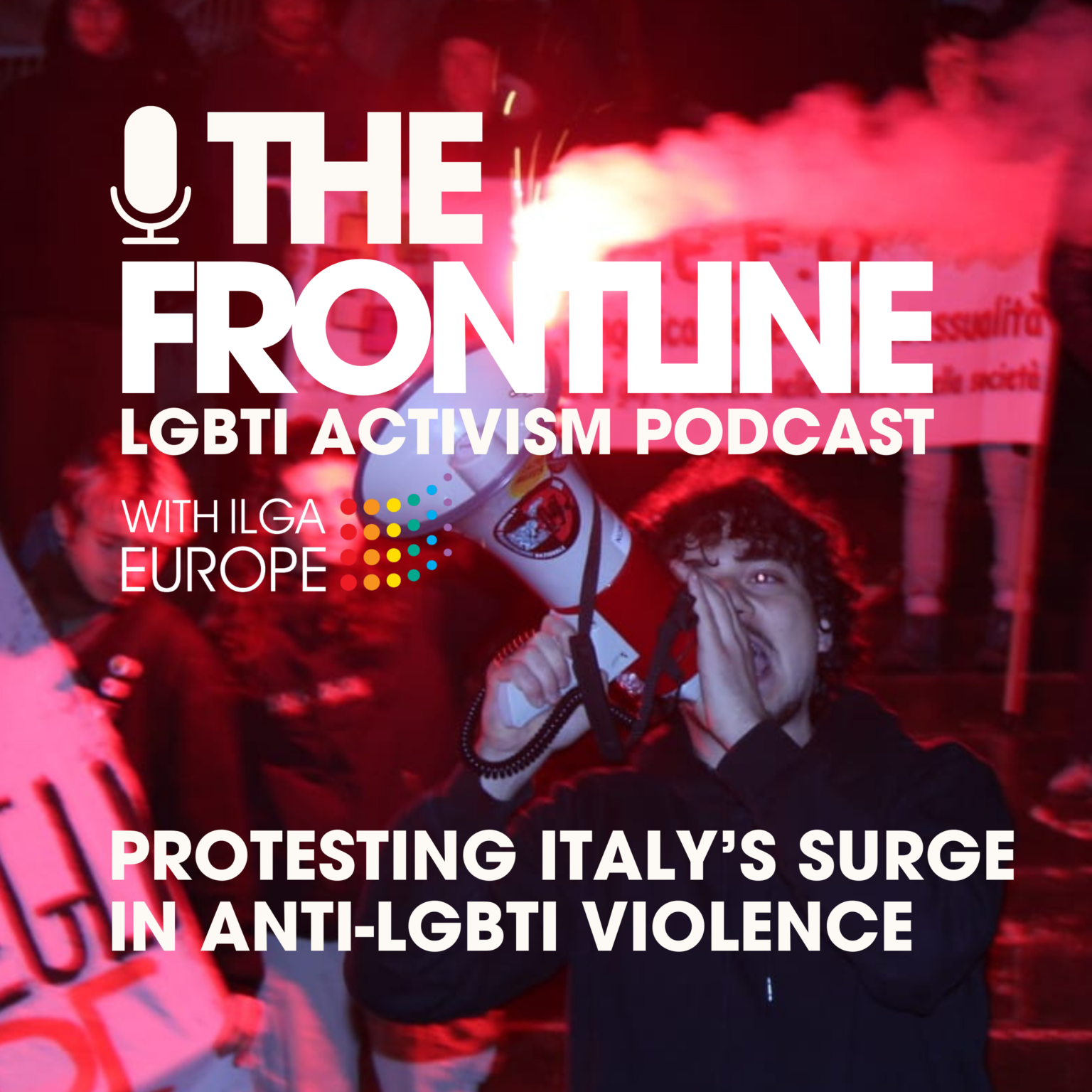
Over the past month, Italy has seen a wave of LGBTI-phobic violence. There have been no less than four hate-motivated attacks in the last four weeks, while hate messages have appeared on the doors of the Cassero LGBTQIA+ centre in Bologna.
The attacks have prompted large protests in both Rome and Milan, demanding the government to take urgent action. But all this is taking place at a time when openly LGBT-phobic rhetoric is used by Italy’s leaders, while legislative protection for LGBTI people in Italy is seriously lacking.
In this episode of The Frontline, we talk with activists from Italy to discuss the alarming rise in hate attacks and how the government is failing to acknowledge the anti-LGBTI motives of the attackers, while at the same time creating a fertile ground for such attacks.
Joining us to explore ways forward for the LGBTI movement, and what the EU should be doing, are Roberto Muzzetta from Arcigay, the largest LGBTI organisation in Italy, and Silvia Magino from Associazione Quore, which works with the community in Turin, and Rosario Coco, President of Gaynet, and Italy-wide association working on training and communication on LGBTI issues.
Tune in now to stay informed on the situation in Italy, the actions activists are taking in response, and their demands, as the country’s leadership continues to politicise anti-LGBTI sentiment within the European Union.
Statement: ILGA-Europe calls on Italian government to end anti-LGBTI rhetoric and violence
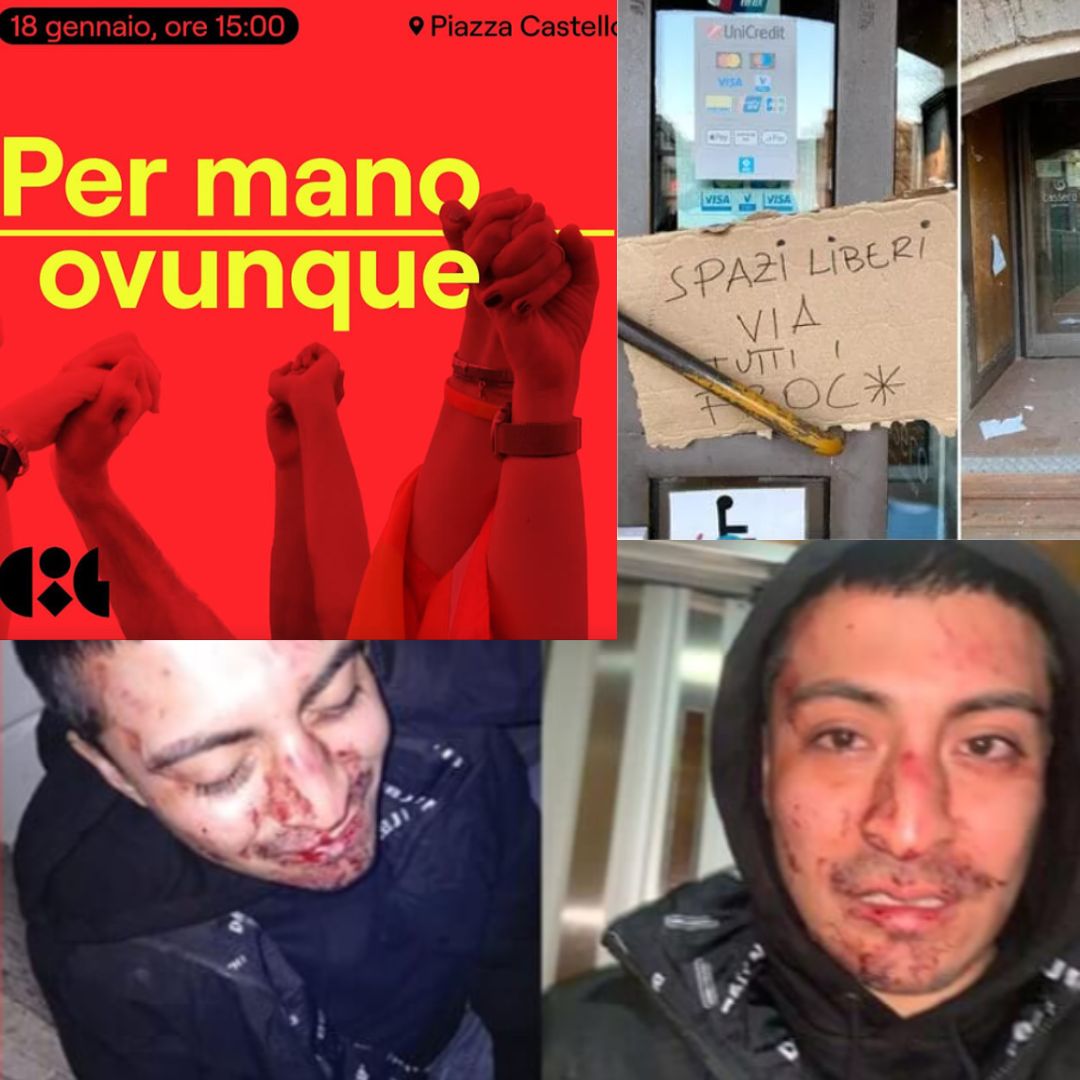
ILGA-Europe stands in solidarity with Italian LGBTI people who continue to face increased hatred and violence and calls on the Italian government to stop feeding a growing divide in Italian society
Over the last weeks, Italy has seen a new surge of LGBTI-phobic violence. There have been no less than four hate-motivated attacks on LGBTI people in the last four weeks, prompting a large manifestation tomorrow in Milan demanding the government take action.
According to the ILGA-Europe’s Rainbow Map, Italy still lacks crucial legal protection for LGBTI people, such as comprehensive hate crime and hate speech laws that would protect LGBTI people, as well as other minorities, from hatred and violence. This legislative gap is even more worrying at a time when violence against LGBTI people in Italy is alarmingly on the rise, exacerbated by the use of openly LGBTI-phobic rhetoric by some politicians. The persistent “witch hunt” against so-called “gender ideology” has created a fertile ground for justifying and amplifying LGBTI-phobic hatred within society. Such narratives not only perpetuate discrimination but also embolden those who act on their prejudices, further endangering the lives and well-being of LGBTI people.
In addition to the increased frequency and severity of LGBTI-phobic attacks (one of the attacks on New Year’s Eve, perpetrated by ten assailants on a gay couple who were holding hands, resulted in serious injuries to the couple – including a head injury and broken nose), the Cassero LGBTQIA+ Centre was vandalised with threatening messages which read: “Free space from faggots”. This targeting of an LGBTI organisation is evidence of the more systemic nature of the issue – those who would want to commit LGBTI-phobic violence have been emboldened by the rhetoric and actions of the ruling parties. A legislative project, the so-called ‘Zan’ law, was voted down in 2021. The law would have designated violence against LGBTI people and disabled people, as well as misogyny, a hate crime. Giorgia Meloni’s party voted against the law and publicly celebrated its defeat.
In light of these troubling developments, we urgently call on political leaders to initiate a meaningful process to establish legal protections for LGBTI individuals in Italy. Most pressingly, we demand that politicians, particularly influential figures within the government—such as Prime Minister Giorgia Meloni and Minister Eugenia Roccella—publicly and unequivocally condemn the growing wave of LGBTI-phobic violence.
Regardless of political considerations, it is the bare minimum for a government that claims to uphold democratic values to take a firm and unwavering stance against violence, especially when it targets minorities. Accepting any form of violence as “the new normal” is incompatible within a society that aspires to equality, dignity, and justice for all.
We urge immediate action to ensure that Italy will return to being a safer, more inclusive country where everyone is protected and valued, regardless of their sexual orientation, gender identity or sex characteristics.
Alarming surge in transphobic speech across Europe sparks concern for EU elections
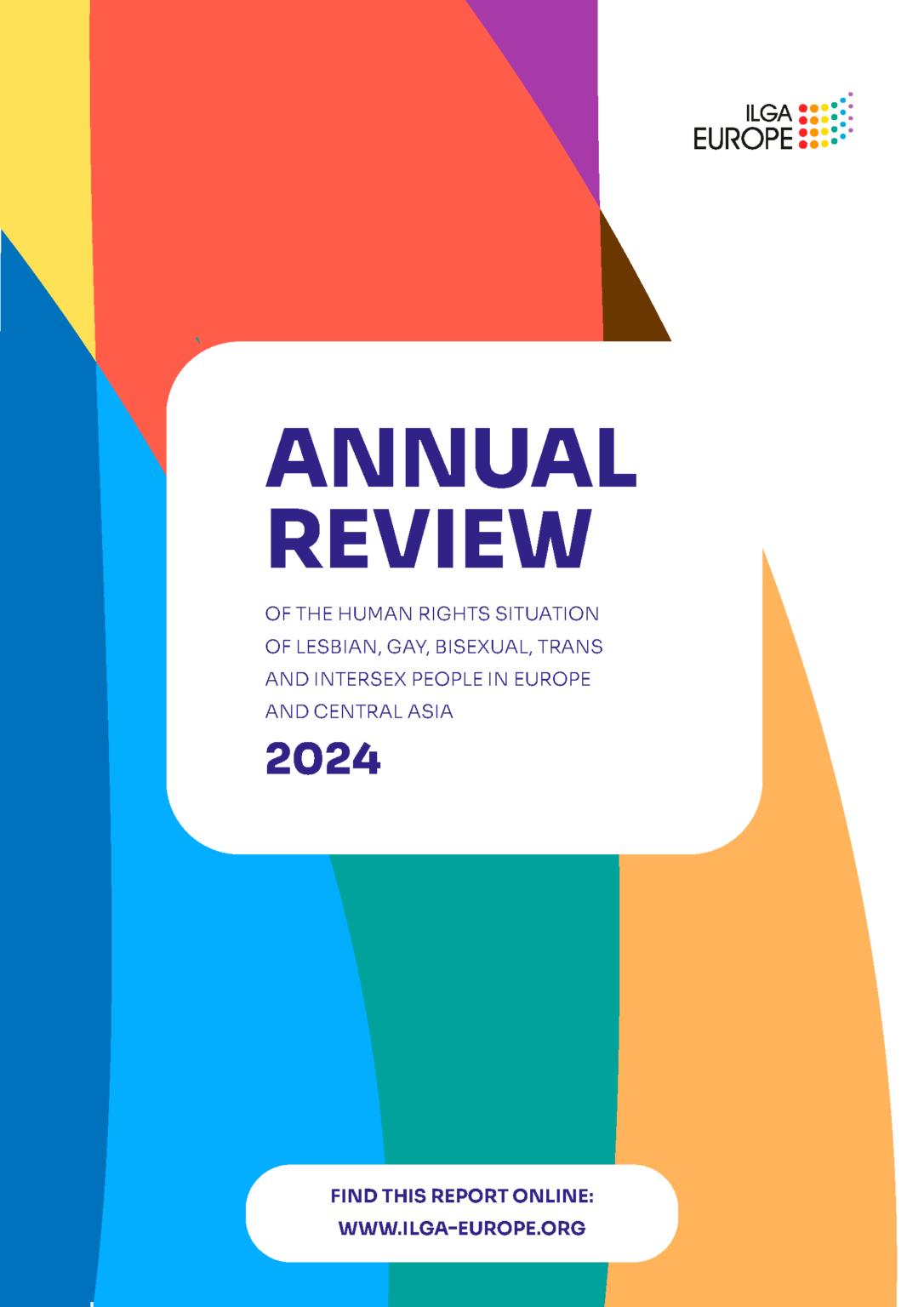
Ahead of the EU Elections next June, a new report shows a stark rise in anti-LGBTI, and in particular, transphobic statements from politicians across Europe.
Published today by ILGA-Europe, the 13th Annual Review of the Human Rights Situation of LGBTI People in Europe and Central Asia alarmingly reports hate speech from politicians in 32 European countries over the course of last year, 19 of them member states of the EU.
There has been a clear accumulation of hate speech against the lesbian, gay, bisexual, trans and intersex (LGBTI) community from officials across Europe, much of it targeting trans people, in countries including EU member states Austria, Bulgaria, Croatia, Cyprus, Czechia, Denmark, Germany, Greece, Hungary, Ireland, Italy, Latvia, Luxembourg, the Netherlands, Portugal, Romania, Slovakia, Spain, and Sweden.
The vast majority of anti-trans statements instrumentalise children, using scare tactics to create opposition to trans minors’ access to healthcare and restrictions on education. This is a broader trend we see in the use of children, with politicians across Europe claiming that limiting access to information about LGBTI people prevents harm to minors.
The report clearly shows that demonising from politicians combined with attempts to introduce legislation is impacting suicide rates and mental health, especially for young LGBTI people, and an escalation in violent protests outside schools and libraries, making young people unsafe.
This fear mongering has directly led to a further rise in attacks. Of the 54 countries reporting in the Review, only six of them reported no hate crime in 2023. In the other 48 countries, much of the reported verbal and physical violence targeted trans people. Only one EU member state reported no hate crime.
Says Katrin Hugendubel, Advocacy Director with ILGA-Europe: “It is in this climate that the European Parliament elections will take place next June. The public discourse is becoming more polarised and violent, particularly against trans people, and the LGBTI community has experienced the highest and most severe violence across Europe in decades.
“The very core values and standards upon which the EU was founded – respect for human dignity and human rights, freedom, democracy, equality and the rule of law – are being called into question, and human rights, and in particular the human rights of LGBTI people, are facing a strong challenge from far-right forces. LGBTI people’s rights and humanity are increasingly being exploited to divide societies, undermine democracy, the rule of law and human rights.”
Next week, ILGA-Europe will launch their Come Out 4 Europe campaign, which will give candidates for the European Parliament an opportunity to show how they will support and protect the rights of LGBTI people as elected members of the European Parliament.
Says Executive Director of ILGA-Europe, Chaber: “LGBTI rights are under attack, and children are being harmed in the process. As we witness the rise of political forces that question basic fundamental rights and freedom, the elections next June will be a pivotal moment for the EU, and for LGBTI people. In light of the findings of the 2024 Annual Review, our ‘Come Out 4 Europe’ campaign will call for clear political commitments on safeguarding human rights, democracy and freedom from candidates for the European Parliament.”
The 5 largest attacks on the fundamental rights of LGBTI people in the EU last year
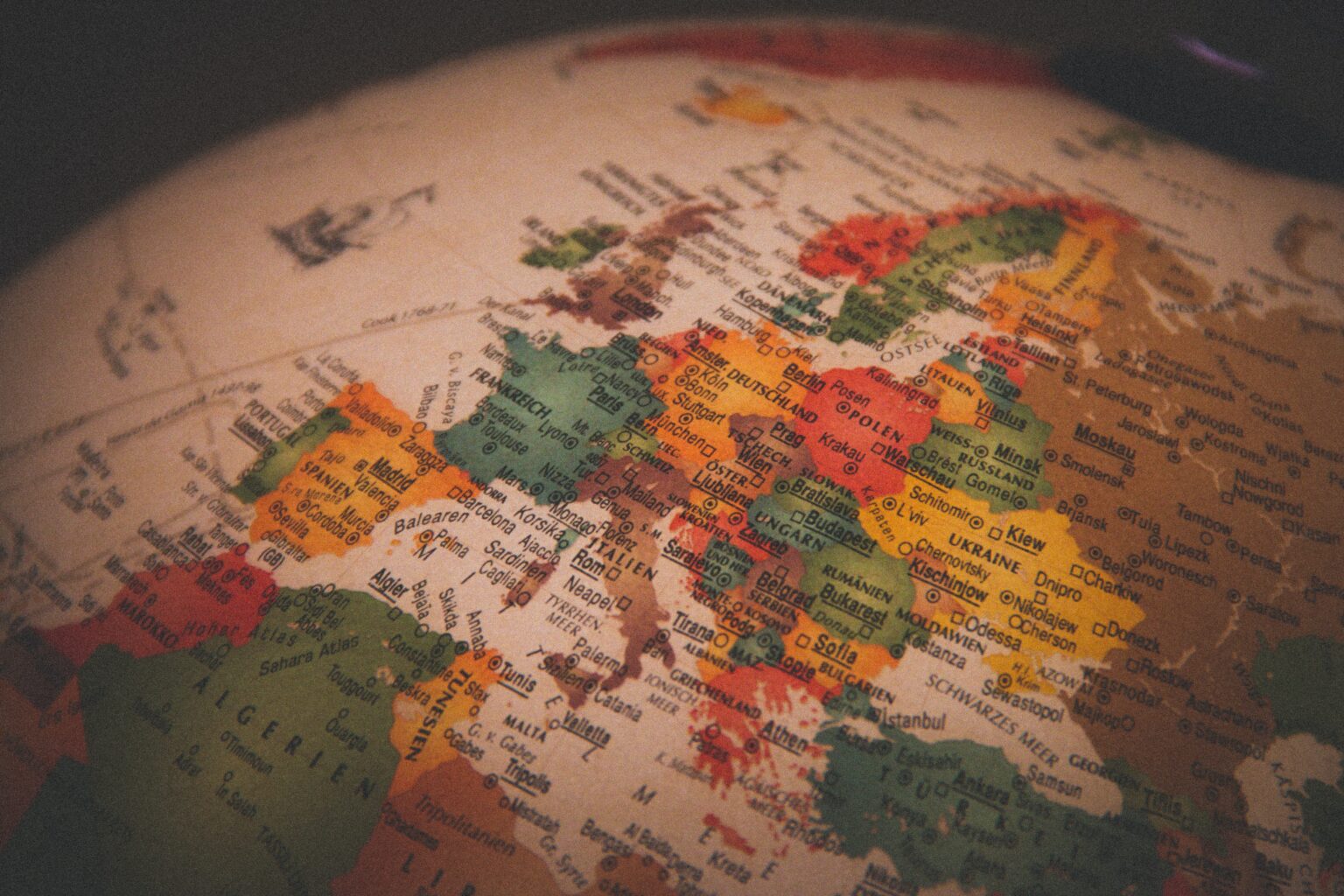
In our submission to the European Commission’s annual Rule of Law report, we’ve identified key trends in the systematic attacks on the rights of LGBTI people across EU member states, and what can be done to counteract them.
Do you know about the EU’s Rule of Law mechanism? It can be used to ensure EU institutions react strongly against LGBTI rights violations across its member states. In the EU, rule of law means that all members of a society, including governments and members of parliaments, are equally subject to the law, under the control of independent and impartial courts.
The rule of law is important because it has a direct impact on the life of every citizen of the EU, and it ensures that laws protecting fundamental rights and democracy are respected by everyone, and can be enjoyed by everyone. It is a fundamental value upon which the EU is based.
Over the past few years it has become increasingly clear that many government-led violations of LGBTI rights in EU member states, go hand-in-hand with an undermining of the rule of law. In ILGA-Europe’s submission to this year’s EU Rule of Law Report, we’ve reported on the systematic attacks on the fundamental rights of LGBTI people across the EU, which have been enabled by the weakening of rule of law and democratic structures in several member states.
ILGA-Europe, with the input of various national-level LGBTI organisations, has submitted written input to inform the 2023 annual report, in order to ensure the violations of LGBTI rights linked to rule of law deterioration are recognised by EU institutions, and are addressed in their follow-up with member states. Here are the trends which we have highlighted to the EC:
Anti-LGBTI bias
In countries where the freedom of the judiciary is weakened, we have been witnessing political interference or bias in court cases related to LGBTI rights. For example, in Poland, the Ministry of Justice uses its powers to repeatedly appeal verdicts that were in favour of LGBTI defendants.
Also, in countries where media freedom is under attack, we are seeing more prevalence of anti-LGBTI bias, smear campaigns and even censorship of LGBTI content.
Harassment and intimidation of LGBTI human rights defenders
Across the EU, hate speech by politicians was a serious issue during 2022, creating an unsafe environment for LGBTI human rights defenders and often related to a rise in hate crime and hate speech against LGBTI people more broadly. LGBTI human rights defenders are still targeted by strategic litigation against public participation (SLAPP) cases, which aim to intimidate activists and journalists to prevent them publishing information about attacks on LGBTI rights. In addition, we saw in Poland that the prosecutor’s office used tactics to intimidate not only LGBTI people ahead of court cases but also judges presiding over cases related to LGBTI rights.
Anti-LGBTI legislation
Legislation aimed at rolling back the rights of LGBTI people continued to be tabled in 2022. The most well-known example of such legislation is the anti-paedophilia legislation adopted by Hungary in June 2021, which includes provisions which ban the “portrayal and the promotion of gender identity different from sex at birth, the change of sex and homosexuality” for persons under 18, and applies these to a number of regulations related to child protection, family, education, media and advertisement.
The European Commission started infringement proceedings against Hungary due to this law in July 2021, taking it to the Court of Justice of the European Union (CJEU) in July 2022. A similar law has since been tabled in Slovakia and Romania, while Poland has drafted a number of laws restricting rights of LGBTI people and currently in Bulgaria draft legislation aims to restrict the functioning of civil society in general.
Judgments are not implemented
Judgments of the Court of Justice of the EU (CJEU) or the European Court of Human Rights (ECtHR) continued to not be implemented last year. The most notable of these is the Coman case from 2018, on freedom of movement for same-sex spouses. Due to its non-implementation in Romania, the country where the case started, it has been taken to the ECtHR. An official complaint was also submitted to the European Commission, with a similar case.
Hate crimes are not investigated
Hate crimes against LGBTI people often are still not sufficiently investigated. A number of EU countries still do not have hate crime legislation with sexual orientation, gender identity or sex characteristics as aggravating grounds. In some countries which do have such legal protection, it is often not implemented properly by police, prosecutors or even Ombudspersons.
So, what can be done?
The EU has a number of tools at its disposal to ensure the respect of the rule of law in all EU countries. The European Commission (EC), the executive arm of the EU, is responsible for guaranteeing the respect of rule of law.
The EU can take specific steps against violations of LGBTI rights in member states, that is if they go against EU legislation and/or if they are rule of law violations. Instruments the EC can use in such cases include so-called infringement procedures, as we see against Hungary and Poland at the moment, triggering Article 7 of the Treaty of the EU, to suspend certain rights from a member state, as well as cuts in EU funding based on rule of law violations.
The EU annual rule of law report highlights breaches of EU and national law, including erosion of democratic standards. Based on this report, the EU institutions talk with EU countries, as well as national parliaments, civil society and other stakeholders in order to address concerns and avoid deterioration.
We hope that our remarks are heard and that the EC will integrate them in its annual Rule of Law Report. LGBTI rights are human rights and must be protected the same way rule of law should be respected in every EU country.
The 5 trending attacks on the fundamental rights of LGBTI people in the EU in 2021
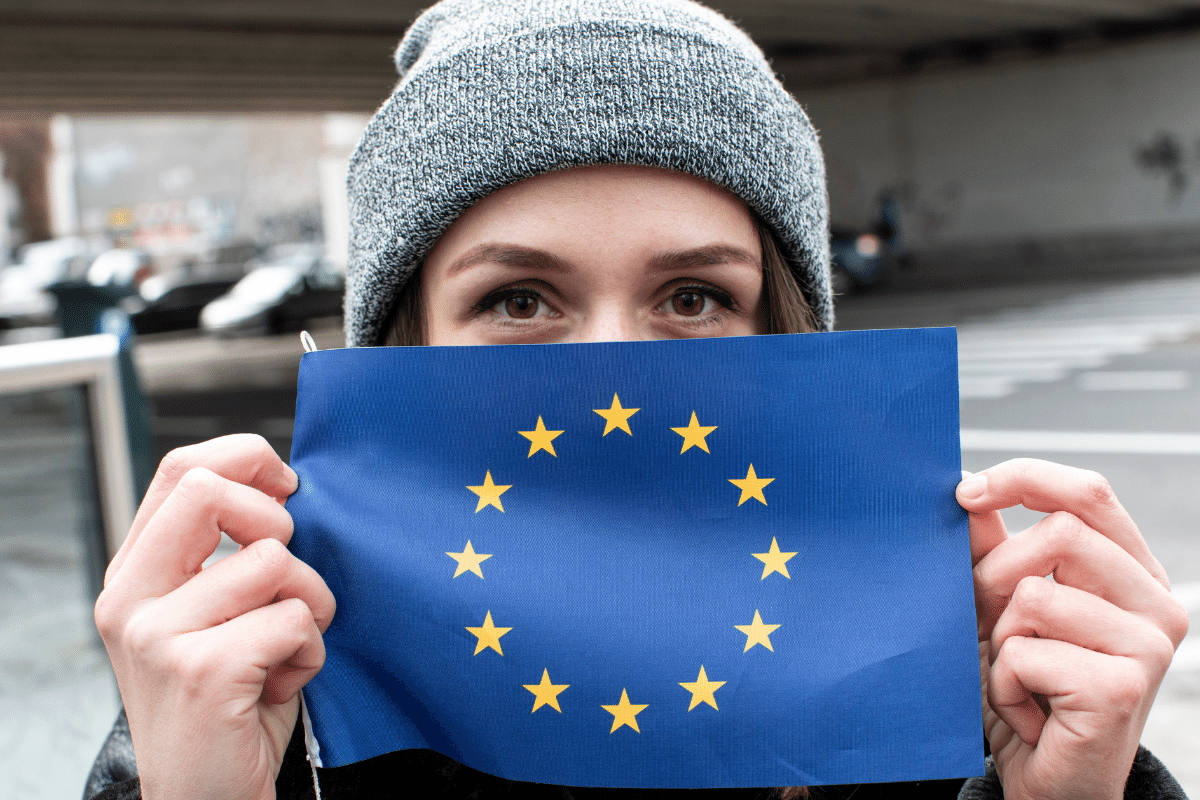
Right now, as the war on Ukraine escalates, democracy, human rights and equality matter more than ever in Europe. In our submission to the European Commission’s annual Rule of Law report, we’ve identified key trends in the systematic attacks on the rights of LGBTI people across EU member states.
With the ongoing Russian invasion of Ukraine, which is also a fundamental attack on democracy and freedom, we need to be working harder than ever to protect human rights and equality in Europe. The EU’s Rule of Law mechanism is one way in which this can be done. It can be used to ensure EU institutions react strongly to human rights violations across its member states. In the EU, rule of law means that all members of a society, including governments and members of parliaments, are equally subject to the law, under the control of independent and impartial courts.
The rule of law is important because it has a direct impact on the life of every citizen of the EU, and it ensures that laws protecting fundamental rights and democracy are respected by everyone, and can be enjoyed by everyone. It is a fundamental value upon which the EU is based.
Over the past few years it has become increasingly clear that many government-led violations of LGBTI rights in EU member states, go hand-in-hand with an undermining of the rule of law. In ILGA-Europe’s submission to this year’s EU Rule of Law Report, we’ve reported on the systematic attacks on the fundamental rights of LGBTI people across the EU, which have been enabled by the weakening of rule of law and democratic structures in several member states.
ILGA-Europe, with the input of various national-level LGBTI organisations, has submitted written input to inform the 2022 annual report, in order to ensure the violations of LGBTI rights linked to rule of law deterioration are recognised by EU institutions, and are addressed in their follow-up with member states. Here are the trends which we have highlighted to the EC:
Anti-LGBTI bias
In countries where the freedom of the judiciary is weakened, we have been witnessing political interference or bias in court cases related to LGBTI rights. For example, in Poland, the Ministry of Justice uses its powers to repeatedly appeal verdicts that were in favour of LGBTI defendants.
Also, in countries where media freedom is under attack, we are seeing more prevalence of anti-LGBTI bias, smear campaigns and even censorship of LGBTI content. Some LGBTI organisations are facing funding restrictions.
Arbitrary use of COVID-19 regulations
In certain countries, COVID-19 regulations have been applied in a discriminatory manner or have been used arbitrarily to restrict the freedom of assembly of LGBTI people. States of emergency have allowed governments to fast-track legislation unrelated to the pandemic, but which directly attack the rights of LGBTI people.
The most well-known example of this is the anti-paedophilia legislation adopted by Hungary in June 2021, which includes provisions which ban the “portrayal and the promotion of gender identity different from sex at birth, the change of sex and homosexuality” for persons under 18, and applies these to a number of regulations related to child protection, family, education, media and advertisement.
The European Commission started infringement proceedings against Hungary due to this law in July 2021. A similar law has since been tabled in Slovakia, is being drafted in Romania, and has been suggested for drafting in Poland and Croatia.
Judgments are not implemented
Judgments of the Court of Justice of the EU (CJEU) or the European Court of Human Rights (ECtHR) continued to not be implemented last year. The most notable of these is the Coman case from 2018, on freedom of movement for same-sex spouses. Due to its non-implementation in Romania, the country where the case started, it has been taken to the ECtHR. An official complaint was also submitted to the European Commission, with a similar case.
Rise in hate crime and hate speech against LGBTI people
Across the EU, hate speech by politicians was a serious issue during 2021, creating an unsafe environment for LGBTI civil society and often being related to a rise in hate crime and hate speech against LGBTI people more broadly. In some EU countries, LGBTI activists are receiving death threats online. In 2021 alone, offices of LGBTI organisations were attacked in Belgium, Bulgaria, Ireland, the Netherlands, Romania, and Spain. Staff and volunteers of LGBTI organisations were also attacked in Bulgaria, Croatia, Finland, Lithuania, Romania and Slovenia, many of which happened after anti-LGBTI smear campaigns in the media. Stickers with the design of the Polish “LGBT-free Zone” sticker appeared in various cities in Belgium, Bulgaria and Latvia. These incidents have led to an effective restriction of LGBTI people’s right to freedom of association, freedom of assembly and freedom of expression.
Hate crimes are not investigated
Hate crimes against LGBTI people often are still not sufficiently investigated. A number of EU countries still do not have hate crime legislation with sexual orientation, gender identity or sex characteristics as aggravating grounds. In some countries which do have such legal protection, it is often not implemented properly by police, prosecutors or even Ombudspersons.
So, what can be done?
The EU has a number of tools at its disposal to ensure the respect of the rule of law in all EU countries. The European Commission (EC), the executive arm of the EU, is responsible for guaranteeing the respect of rule of law.
The EU can take specific steps against violations of LGBTI rights in member states, that is if they go against EU legislation and/or if they are rule of law violations. Instruments the EC can use in such cases include so-called infringement procedures, as we see against Hungary and Poland at the moment, triggering Article 7 of the Treaty of the EU, to suspend certain rights from a member state, as well as cuts in EU funding based on rule of law violations
The EU annual rule of law report highlights breaches of EU and national law, including erosion of democratic standards. Based on this report, the EU institutions talk with EU countries, as well as national parliaments, civil society and other stakeholders in order to address concerns and avoid deterioration.
We hope that our remarks are heard and that the EC will integrate them in its annual Rule of Law Report. LGBTI rights are human rights and must be protected the same way rule of law should be respected in every EU country.
Commission includes LGBTI people in initiative to tackle hate crime and hate speech across the European Union
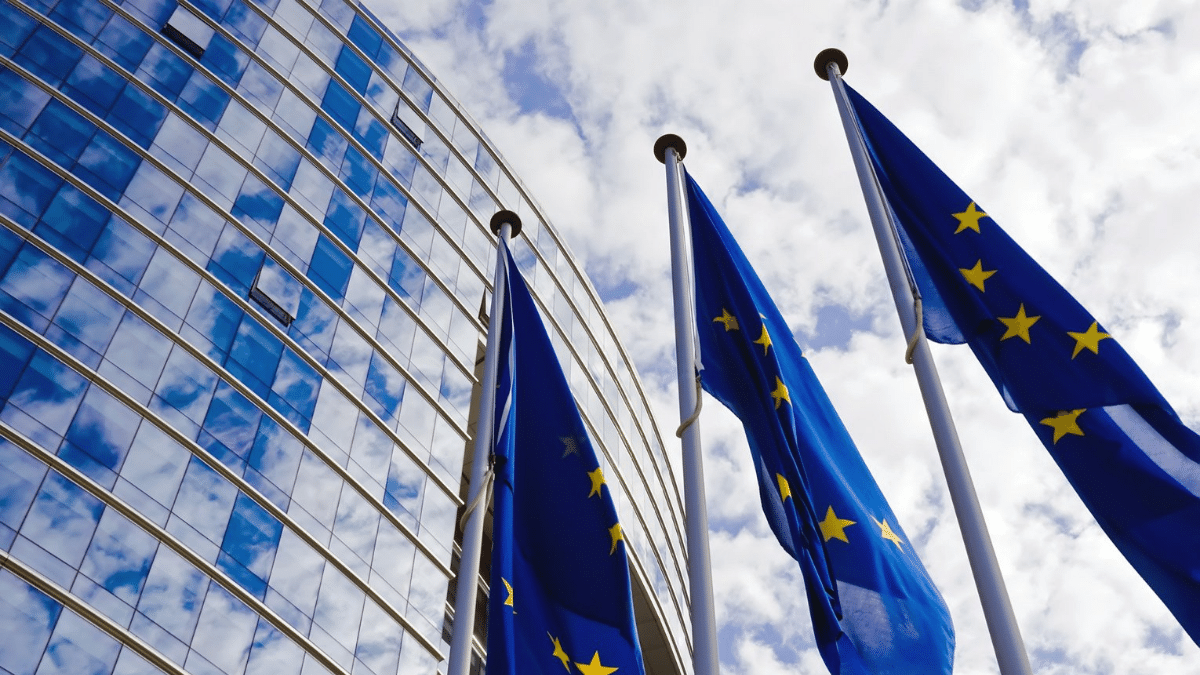
The European Commission has put forward a legal initiative to extend the list of EU crimes to include hate speech, both online and offline, and hate crime, with clear understanding that LGBTI people must be protected.
Today, with its initiative to tackle hate crime and hate speech across the European Union, the EU Commission has recognised ever-growing violence and hate speech against LGBTI people by including sexual orientation, gender identity, gender expression and sex characteristics (SOGIESC) as protected grounds in the second step of the initiative.
By naming SOGIESC explicitly in the hate crime and hate speech initiative, the Commission has drawn attention to the prevalence of bias motivated violence and incitement against LGBTI people due to historical and structural discrimination and oppression, and sends a signal to the criminal justice system, potential perpetrators and victims of hate crime or hate speech that hate crime and hate speech against LGBTI people should be taken seriously.
On 16 September this year, the European Commission President, Ursula von der Leyen announced, in her State of the Union Address at the European Parliament a new initiative on extending the list of EU crimes to all forms of hate crime and hate speech – whether because of race, religion, gender or sexuality. It was further mentioned in the Commission Work Programme 2021 and in February 2021, the Commission published a roadmap on the initiative, scheduled for the fourth quarter of 2021.
As it is noted in a letter sent by the ILGA-Europe, OII Europe and TGEU to President von der Leyen, only by the explicit inclusion can existing protection gaps be closed across the EU and LGBTI phobic hate crime be tackled effectively. A number of reports show that in places where discrimination against LGBTI people prevails, the provision of a general legal protection often leads to disadvantageous application of the law against this group.
Welcoming the explicit inclusion of SOGIESC in the initiative, Akram Kubanychbekov, Senior Advocacy Officer with ILGA-Europe said: “Considering the prevalence of hate speech and hate crime against LGBTI people in the EU, it is critical that the EU finally recognises bias-motivated violence and speech against LGBTI people.
“This will establish a legislative framework to work towards real change in society, where right of LGBTI people are fully respected on equal footing with others. It will also allow to develop policies at the EU and national levels on preventing bias motivated violence, advance support services for victims of such crimes and training staff of the criminal justice system among others.”
Background information:
Article 83(1) TFEU provides for an exhaustive list of areas of particularly serious crime with a cross-border dimension (known as ‘list of EU crimes’) for which the European Parliament and the Council may establish minimum rules concerning the definition of criminal offences and sanctions. Under Article 83(1), third subparagraph, based on ‘developments in crime’, the Council may adopt unanimously a decision (subject to the consent of the Parliament) extending this list by adding other areas of crime. The Commission presented this initiative to trigger such Council decision, through a Communication to the European Parliament and the Council.
Adoption of the decision of the Council to identify hate speech and hate crime as “other areas of crime” will serve as a legal basis for the next step: adoption of a directive or regulation setting standards for the prosecution of such crimes, recognition of the protected characteristics, and the protection of victims of the bias motivated violence or incitement to discrimination across the EU. Second step will go through the ordinary legislative procedure.
This initiative will complement the work on a legislative proposal on preventing and combatting gender-based violence against women and domestic violence to be presented at the beginning of 2022 and the proposal for a Digital Services Act.
ILGA-Europe have provided input to numerous open and targeted consultations on the topic this year and closely supported the Commission’s work on this initiative.
The full text of the Communication to the European Parliament and the Council can be read here.
Open letter to President of the European Commission Ursula von der Leyen
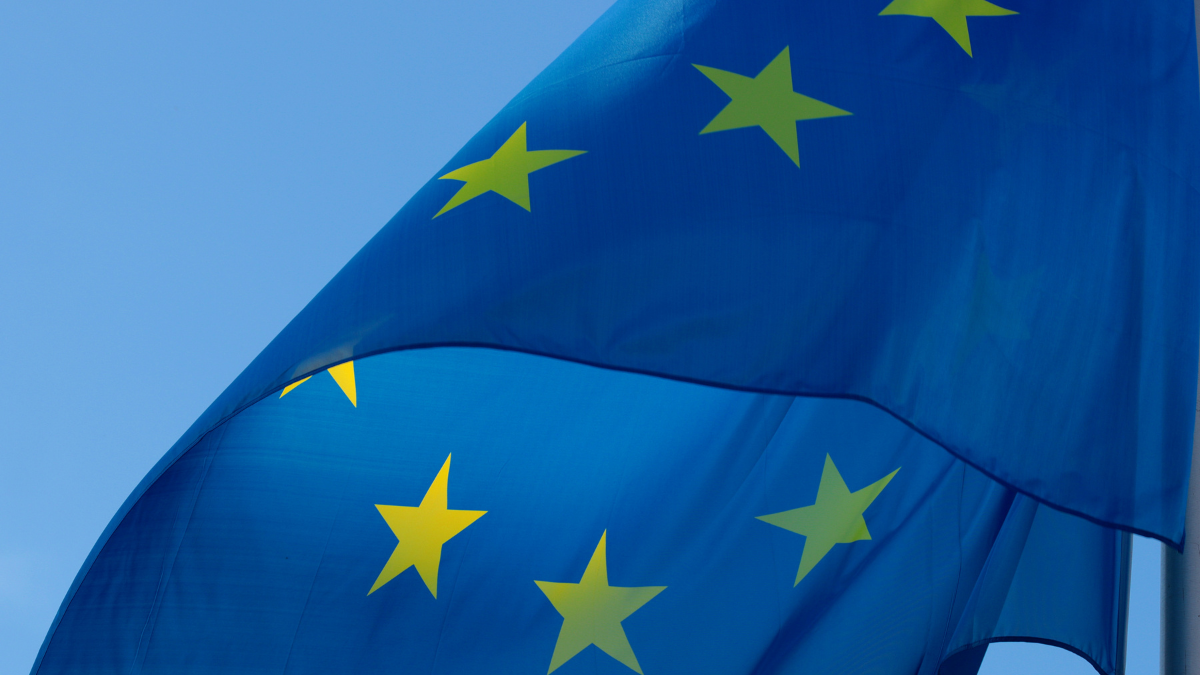
ILGA-Europe, OII Europe, and TGEU urge the European Commission to acknowledge the existing prevalence of the violence and incitement to discrimination against LGBTI people, through naming SOGIGESC explicitly as protected grounds in the upcoming EU-level hate crime and hate speech legal initiative.
Dear Commission President von der Leyen,
As organisations working for an equal and inclusive Europe for lesbian, gay, bisexual, trans and intersex people, we would like to raise our concerns regarding the upcoming initiative of the European Commission on extending the list of EU crimes to all forms of hate crime and hate speech.
In recent years, hate speech and hate crime targeting persons and organisations based on sexual orientation, gender identity, gender expression, and sex characteristics have increased globally, and also across the European Union.
Given this increasingly alarming context, we would like to thank you for your strong message of support for our community and commitment to advancing equality for LGBTI people, from your State of the Union speech last September to the adoption of the first ever EU LGBTIQ Equality Strategy in November. The clear commitments to provide protection from hate crime and hate speech on extended grounds, including hate against LGBTI people are important signals that the European Commission stands firm on the protection of rights LGBTI people.
As the European Commission is at the finalisation stage of the initiative on extending the list of EU crimes to all forms of hate crime and hate speech, ILGA-Europe, TGEU and OII Europe are urging you and the College of Commissioners to stay true to the commitment made by you and Commissioner Dalli on several occasions to ensure the protection of LGBTI people against hate crimes, by including the grounds of sexual orientation, gender identity, gender expression and sex characteristics explicitly in the proposed extension. Only by the explicit inclusion can existing protection gaps be closed across the EU and LGBTI phobic hate crime be tackled effectively. In the situation, where bias and discrimination against the group is prevalent in general society, provision of general legal protection often leads to disadvantageous application of the law against these group.
Over the last years, we have been seeing targeted attacks against trans people and their rights, which mis-characterise the fight for equality of trans people as promotion of so-called “gender ideology”. In a targeted campaign of ultra-conservative forces against women’s rights as well as LGBTI rights, trans people are being targeted and made even more vulnerable, as the unleashing of transphobic hate speech often translates in violence and hate crimes against them. In addition, intersex people and intersex organisations have become increasingly a target of intersexphobic hate speech. These attacks are carried out by the same ultra-conservative actors and focus on the person having a variation of sex characteristics or the organisation working for intersex people’s rights.
The 2019 FRA LGBTI survey, clearly documented the overproportionate rise in hate crimes and hate speech against trans and intersex people. 17% of trans and 22% of intersex respondents experienced physical or sexual attacks, while 48% of trans and 42% of intersex people experienced harassment, registering the highest rates among the LGBTI population. The impact of hate crime and hate speech also proved to be disproportionately harmful for trans and intersex victims: 58% of trans and 54% of intersex respondents reported suffering from psychological problems and 48% of intersex and 39% of trans respondents felt limited in their freedom of movement, as a result of the attack. TGEUs global Trans Murder Monitoring showed that the last year has been the deadliest since the beginning of recordings with 357 reported cases; moreover 96% of murdered trans people globally were trans women and trans feminine persons.
In the light of the extreme rise in transphobia and the well-documented impact it is having on trans and intersex people, it would be a very negative signal if the Commission was to propose an extension of protection against hate crimes which does not explicit include the grounds of gender identity and sex characteristics. It would be a serious disappointment to the communities that are looking to the Commission to finally get protection of their rights, on equal footing with everyone else, following the strong commitments to the protection on trans and intersex rights in the EU LGBTIQ Strategy. It would also send a very dangerous message to all those actors who are fuelling hatred, that trans and intersex people remain a legitimate target of their hateful speech, as trans and intersex people would continue to be unprotected.
The European Commission has shown in the past that it is possible to ensure legal protection of trans and intersex people, by explicitly including gender identity and gender expression in EU legislation. The Victims’ Rights Directive has set the standard, by providing protection to LGBTI victims of crimes beyond sexual orientation by including gender identity and gender expression as protected grounds. FRA has also interpreted the Directive as inclusive of intersex people, which is in line with the core objective of this legal instrument, aimed at protecting all victims of crime, in respect of the non-discrimination principle. The new initiative on the extension of Eurocrimes cannot fall behind the standards previously set, and therefore it needs to explicitly include gender identity, gender expression and sex characteristics. Without recognition of bias-motivated violence and hate speech against LGBTI people, victims of such crimes are left out of the protection.
It is crucial to provide an effective legislative protection for LGBTI people by acknowledging the existing prevalence of the violence and incitement to discrimination against them through naming sexual orientation, gender identity, gender expression and sex characteristics explicitly in the EU level hate crime and hate speech legal initiative.
We are calling up on you to take effective and meaningful action to ensure that safety and dignity of LGBTI people are fully protected in the upcoming hate crime and hate speech initiative of the Commission, adding that we at ILGA-Europe, TGEU and OII Europe remain fully and firmly committed to supporting the European Commission in its work, wherever we can.
Evelyne Paradis Executive Director ILGA-Europe
Dan Christian Ghattas Executive Director OII Europe
Masen Davis Executive Director TGEU
Poland Anti-LGBTI Hate Timeline
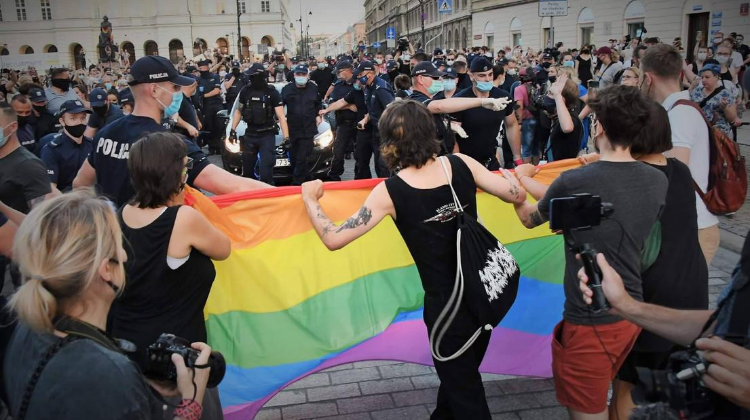
Over the past number of years, LGBTI people have come under increasing attack from ruling politicians, religious leaders and other public figures in Poland. This has come in the form of dangerous and false framing of LGBTI people as a threat to children, and as a threat to Christianity.
We have created and will be updating this abbreviated timeline of what’s been happening over the past two years with the rise of official homophobia and transphobia.
How LGBTI rights are being used for political manipulation in Europe, and why that’s something everyone should be worried about
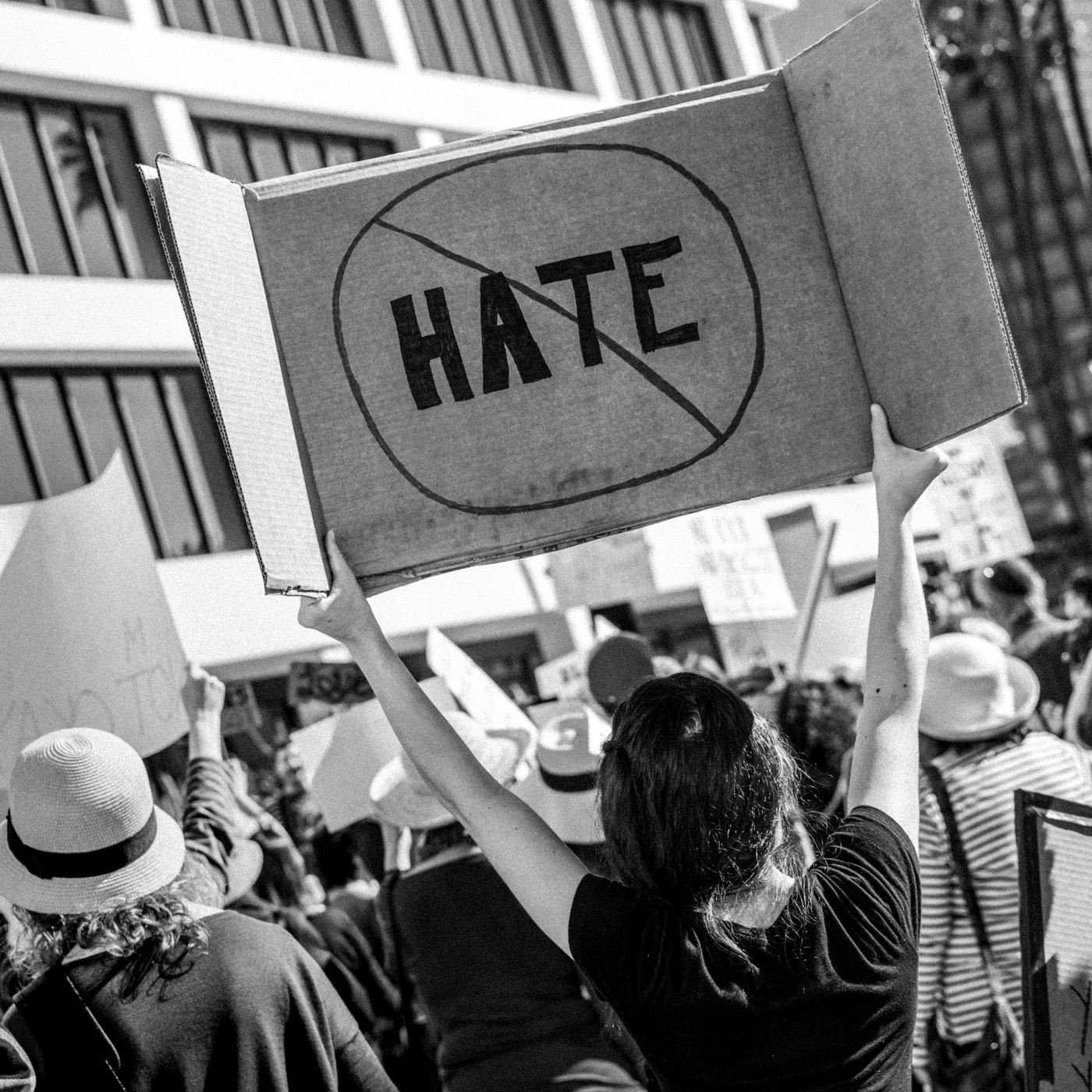
Commissioner for Human Rights, Dunja Mijatovic has issued a powerful comment, clarifying that LGBTI people are being used as a political pawns by ultra-conservative leaders in more and more European countries, and that in turn the human rights and freedom of everyone are being undermined. Here’s what she had to say.
“World Pride is being celebrated on our continent this week, but a surge in intolerance towards LGBTI people in Europe is nothing to be proud about,” said Commissioner for Human Rights, Dunja Mijatovic in the opening paragraph of a powerful comment, published on August 16. She went on to warn that public officials “are failing in their duty to promote equal dignity and human rights for all.”
The Commissioner for Human Rights is an independent institution established by the Council of Europe. Its mission is to protect human rights across Europe, pursuing direct dialogue with authorities in each state, providing advice and raising awareness, and supporting the work of human rights defenders.
Issuing comments is one of her tools towards these goals. The latest one is a strong message of support to all LGBTI communities on the European continent and a wake-up call at a time when politicians and public officials are blatantly targeting LGBTI people for their own political gain.
Here are the Commissioner’s nine main statements about the manipulation of LGBT rights by ultra-conservative politicians to gain power in Europe:
1.“Scapegoating LGBTI minorities has become a tactic applied by ultra-conservative and nationalist politicians posing as defenders of so-called “traditional values” to strengthen their base and gain or stay in power. I have observed that stigmatisation of LGBTI people is particularly pronounced in the run-up to elections and votes.”
2.“In addition to mobilising certain categories of voters, the exploitation of societal homo/transphobia has proven a convenient way to divert public attention away from government failure to address pressing social issues and rising inequalities, and broader attacks underway on human rights and democracy.”
3.“Anti-gender movement actors seek to blur the lines for their audience by adopting the vocabulary of human rights, but what they are doing in reality is working to deprive other groups — mainly women and LGBTI people — of their rights.”
4.“By permeating the political scene, the anti-gender movements are increasingly well-placed to erode the protection of human rights in Europe. It is urgent to acknowledge this fact and take steps to counter it.”
5.“Targeting LGBTI people for political gain is a costly strategy which harms the lives and well-being of those affected and undermines social cohesion in general. When public officials and elected politicians employ intolerant rhetoric, this signals to others that they too can engage in hateful actions with impunity.”
6.“Stigmatisation and political manipulation of LGBTI issues rarely stops at words; it often goes on to adversely affect how LGTBI rights are protected at policy level and by law […] Bills that should be uncontroversial have spurred heated political debate. For example, in Italy, a bill ensuring that sexual orientation and gender identity are mentioned along with other grounds in a law prohibiting hate speech and hate crimes, has been blocked for months.”
7.“As clearly established by the European Court of Human Rights, hate speech against LGBTI people is not protected by freedom of expression, and neither is it by freedom of belief.”
8.“Political parties and parliaments should adopt codes of ethics that prohibit and punish homophobic and transphobic hate speech. Public representatives should systematically condemn homophobic and transphobic speech. There must be no impunity for particularly serious cases of incitement to hatred and violence by politicians.”
9.“Human rights are universal and indivisible: ensuring that everyone in society can enjoy them is the key to cohesive, peaceful societies where everyone can strive. Pitting groups of people against each other breeds tensions, hate and violence — only serving the narrow interests of some unscrupulous politicians.”
“It feels as if we’re trapped with our abusers.” Ukrainian activist Anna Sharyhina tells the story of unhindered anti-LGBTI abuse in Kharkiv
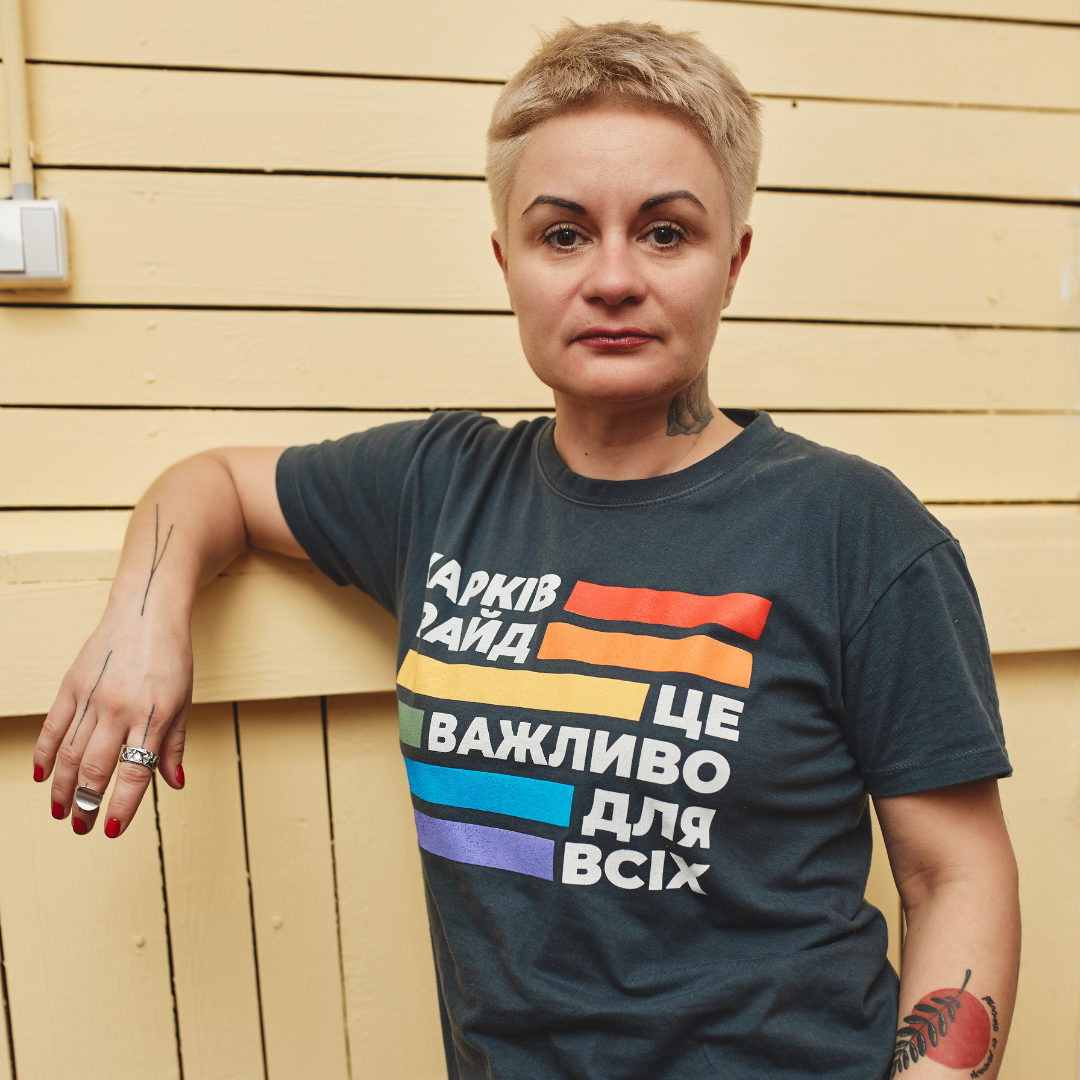
Throughout 2020, LGBTI activists have been harassed, intimidated and threatened by well-known far right groups in Ukraine, while police and local authorities turn a blind eye. Here is activist Anna Sharyhina’s alarming story, and how you can lend her and other LGBTI Ukrainian activists your support.
Two years ago, on New Year’s Eve, Anna Sharyhina gathered with friends and activists at the headquarters of Sphere, the LGBT organisation she cofounded and leads in the Ukrainian city of Kharkiv. At one point during the celebration Anna realised they were trapped. Thugs had padlocked the gate from outside. The group of friends feared the attackers would hurl smoke grenades in, as had occurred at PrideHub, Kharkiv’s LGBT+ friendly community centre. Little did Anna know that this would be the first of over 20 attacks she would both witness and suffer personally over the next two years.
Anna Sharyhina has been involved in LGBTI activism for over ten years and she is well-known in the community. This year she was part of organising the first ‘Pride on Wheels’ in Ukraine, a creative celebration of amid COVID-19 restrictions. Her active role in Kharkiv’s political, social and cultural life and her visibility in events and media, however, have come at a cost.
The police just stand by and watch
The façade of PrideHub, which is run by Anna and Sphere, has been covered with graffiti, featuring death threats and abusive language, and its windows have been shattered. Urine, feces, and blood have been smeared on its front door. At some events, groups of men have blocked the entrance locking their arms in a human chain. Activists and guests at the centre have been filmed and mocked online. Recently, a man handcuffed himself at the entrance, disrupting an activist event and barring participants from entering.
On this, as on other occasions, police officers passively stood by and watched. None of the complaints filed by LGBTI activists in Kharkiv have been followed up. Despite the evidence from the video surveillance system installed at PrideHub, no investigation has been carried out. By taking no action, police and local authorities are failing to protect citizens and their rights to freedom of association, assembly and expression, as well as ignoring Ukraine’s criminal code. Only at Pride celebrations, when the international community is watching, do the authorities provide actual protection.
Threats on her phone
The group behind the attacks is the far-right Tradition and Order. It has been active in different cities in Ukraine and is known for its use of violence and intimidation against those fighting for equality, gender diversity and women’s rights.
LGBTI organisations have been documenting the rise of organised violence against LGBTI activists, organisations and events for several years, calling for LGBTI-inclusive hate crime legislation. Ukraine has an obligation under the EU-Ukraine Association Agreement to introduce hate crime legislation that includes sexual orientation and gender identity as protected grounds.
Anna says she feels as if they are trapped in a locked room with their abusers, and everyone is looking away. Along with the attacks on Sphere, she receives threats on her phone on a regular basis. Allies and partner organisations who have been involved in projects with her, have also been intimidated. For example, a long-time partner organisation, an educational centre that’s openly LGBTI-friendly, received a group of visitors who threatened them with violence unless they stop their cooperation with Sphere.
Much of the harassment and intimidation seems to be centered on Anna, and follows the path of the projects and collaborations that feature her. The pressure intensified after a course that she taught on the prevention of bullying in schools. Violent opponents come to her lectures and discussions, disrupting them. This is especially threatening for people who are new to activism or to the topics at hand.
Dealing with this situation and reacting to attacks in an atmosphere of impunity is taking a great personal toll on Anna, on her colleagues and on Sphere’s work. They see themselves in a swim or sink situation, where swimming is getting harder and harder.
Here is what you can do to support Anna and the LGBTI community in Kharkiv, Ukraine
In this worrying scenario, Anna and her team continue to believe in their mission and commitment to the LGBTI community in Kharkiv and elsewhere. But dealing with security in the absence of any law enforcement takes more and more resources. Activists should not have to do this alone. You can help them by:
Spreading the word. Share Anna’s and Sphere’s story and help them stay in the spotlight until the Ukrainian authorities take action to prevent harassment and violence. Visibility helps!
Speaking up. Are you part of a human rights organisation or an activist initiative? Issue a statement or write an article about Anna’s and Sphere’s case. Tell Ukrainian and international political representatives that the violence and harassment against Anna Sharyhina, other LGBTI activists and their allies in Kharkiv must stop.
The following contacts in Ukraine can make a difference. They can make sure that the threats and attacks against Anna and Sphere are properly addressed by the police. They can prevent further threats and violence by publicly condemning violence against LGBTI and other human rights defenders and sending a clear signal that it will not be tolerated.
Contact them with your statements, tag them in your posts, and tell them that it is time to take action:
- Liudmila Denisova, Human Rights Ombudsperson: https://www.facebook.com/denisovaombudsman/
- Igor Terekhov, Acting Mayor of Kharkiv: https://www.facebook.com/igor.terehov.kh
- Alyona Stryzhak, Head of the Kharkiv Patrol Police Department: https://www.facebook.com/alyona.stryzhak.9
- Andriy Rubel, Chief of the Main Directorate of the National Police: https://www.facebook.com/people/%D0%90%D0%BD%D0%B4%D1%80%D1%96%D0%B9-%D0%A0%D1%83%D0%B1%D0%B5%D0%BB%D1%8C/100059591866063
- Serhiy Knyazev, Adviser to the Minister of Interior: https://www.facebook.com/sergii.knyazev
- Arsen Avakov, Minister of the Interior: https://www.facebook.com/arsen.avakov.1
Podcast: What’s it like being LGBTI in Poland in 2020?

Poland has reached a dangerous boiling point in its state-driven discrimination against LGBTI people. The first episode of ILGA-Europe’s podcast, The Frontline, goes behind the scenes to talk about a way forward for LGBTI activism in the country. Here’s what it’s all about…
Poland has been making international headlines over the past few years for its increasing state driven homophobia and transphobia, pushed by public representatives in both the political and religious arenas, but how is the situation experienced on the ground for ordinary LGBTI people? In the first episode of ILGA-Europe’s new podcast, The Frontline, we talk to Polish activist Slava Melnyk, from LGBTI organisation KPH, and David Socha, a young gay man living in the city of Pulawy, which was declared one of Poland’s so-called LGBT-Free Zones last year. Stay with us until the end to hear the ILGA-Europe team discuss the happenings in Poland as part of a wider trend, how Europe should respond, and strategic thinking for the Polish LGBTI movement.
“The issue is very divisive,” says Warsaw-based activist Slava Melnyk in an interview with The Frontline, ILGA-Europe´s brand new podcast. In the aftermath of the re-election of far-right President Andrzej Duda and protests in early August, in solidarity with activist Margot Szutowicz, who was arrested and now awaits trial, the situation for LGBTI people in Poland has reached a dangerous boiling point. However, despite state-driven LGBTphobia, illustrated by the rise of the so-called ‘Family Charter’ and LGBT-free Zones across the country, there are many Polish people who disagree with the ruling PiS party’s stance on ‘LGBT ideaology’.
“When I walk down the street, every other building has a rainbow flag as a gesture of solidarity and support for the movement,” says Melnyk.
In the very first episode of The Frontline we delve deep into the situation for LGBTI people in Poland and the work of activists amid the rise of official anti-LGBTI campaigning and the recent crackdown. Along with Slava Melnyk from KPH (Campaign Against Homophobia), David Socha, a young gay man living in one of Poland’s LGBT-free Zones, tells us about how this has affected his day-to-day life, and the ILGA-Europe advocacy team discuss the role of the EU institutions and external actors, and ways forward for the LGBTI movement in Poland.
David Socha was “shocked and enraged” when he learnt his town, Pulawy, had been declared an LGBT-Free zone. “I feel a sense of dread that people who pass by me might insult me,” he tells The Frontline. “I’ve heard from my friends that it only takes being in the wrong place at the wrong time, that will get you beaten… I’ve had friends saying that LGBTI people are ill and that they shouldn’t exist.”
On Monday 14 September, ILGA-Europe together with Polish LGBT rights organisations KPH (Campaign Against Homophobia) and Fundacja Równo?ci (The Equality Foundation) submitted a legal complaint to the European Commission about the so-called Family Charters and LGBT-free zones, which over 100 Polish local governments have adopted over the last two years.
“The European Commission and Council can no longer remain silent in the face of such blatant violations of the principle of non-discrimination by a member state,” said Katrin Hugendubel Advocacy Director of ILGA-Europe.
Rounding up our episode, Katrin and ILGA-Europe’s Senior Litigation Officer, Arpi Avetisyan talk about the trend that the rise of LGBTphobia in Poland is part of, strategic ways forward for the Polish LGBTI activists, and how Europe can take effective action to remedy the situation.
To access our timeline charting the rise of LGBTI hate in Poland, visit this link, check out Poland’s position in our Rainbow Map 2020 and the Poland chapter in our Annual Review 2020.
Joint Statement: End hate speech and targeted attacks against LGBTI people in Turkey
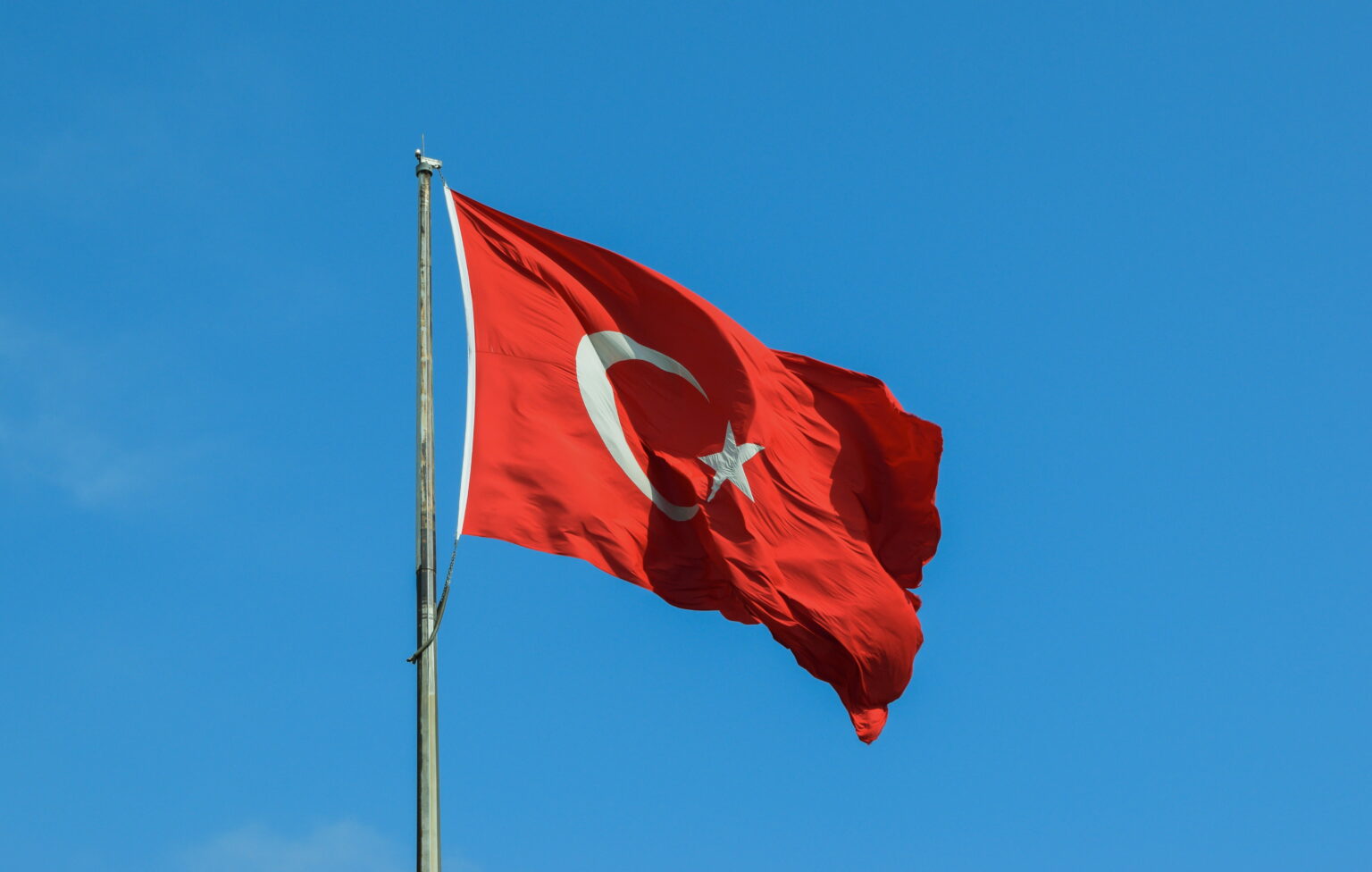
We call on Turkey to respect, guarantee, protect and fulfil the fundamental rights of the LGBTI community without discrimination as enshrined by its Constitution and equality article therein (article 10), and ratified by human rights treaty bodies.
We, the undersigned human rights organisations, are concerned about rising hateful rhetoric against the LGBTI community by representatives of high-level religious and political institutions in Turkey which we have seen in the last week. These efforts are part of a broader backlash on human rights targeting various minorities. Considering the systematic attacks and bans that Turkey’s LGBTI movement has experienced at the hands of Turkish authorities since 2017,(see here and here) the statements by the chief of religious affairs and endorsed by President Erdogan are yet another escalation of an ongoing attack from state institutions against the LGBTI community, and further endanger the work of LGBTI rights defenders in the country. The attacks on the LGBTI community unfortunately have become exemplary of efforts by the Turkish government to undermine human rights and the rule of law in the country.
It is particularly concerning that the Turkish government is using the moment of the global COVID-19 pandemic to undermine the fundamental rights of marginalized groups in society. Stirring up hatred could exacerbate existing inequalities and likely lead to further discrimination in the provision of health care services, employment and other services that are vital in times of crisis. It may also lead to arbitrary arrests, ill-treatment, persecution and surveillance by law enforcement authorities – who might feel that such acts are condoned or even encouraged by the government.
The Turkish government has an obligation to protect everyone from hate crime and discrimination, and should not be part of any statements that could encourage hate crimes and target a minority group, including LGBTI people. Turkey’s government should ensure that all of its representatives refrain from making statements that stigmatise lesbian, gay, bisexual, transgender and intersex (LGBTI) people and people living with HIV, and which put them at risk of harassment and attacks. Human rights defenders should not be criminalised for speaking out against homophobic statements by state officials, and therefore criminal investigations against those speaking out, such as the Ankara and Diyarbak?r Bar Associations, should be dropped immediately.
We reiterate the statement of the United Nations Special Rapporteur on freedom of religion or belief, in which he clearly states that religious beliefs cannot be used to justify LGBTI rights violations nor be invoked as legitimate ‘justification’ for violence or discrimination against LGBTI people, and that the right to freedom of religion protects individuals and not religions as such.
We recall that as a founding member of the United Nations, Turkey pledged to protect inherent dignity and the equal and inalienable rights of all members of the human family. In addition, as a Member State of the Council of Europe and having ratified the European Convention of Human Rights, Turkey must uphold European human rights law, which prohibits a discriminatory application of human rights.
We call on Turkey to respect, guarantee, protect and fulfil the fundamental rights of the LGBTI community without discrimination as enshrined by its Constitution and equality article therein (article 10), and ratified by human rights treaty bodies. The Turkish government should ensure that all of its representatives refrain from making statements that stigmatise LGBTI people and people living with HIV, and which put them at risk of harassment and attack.
Background information
During the Friday sermon (khutbah) on April 24, the President of the Directorate of Religious Affairs, Ali Erba? targeted LGBTI people and people living with HIV. He equated homosexuality with a disease, stating that “hundreds of thousands of people a year are exposed to the HIV virus caused by this great haram, which passes as adultery in the Islamic Literature”. Moreover, the President of the Directorate of Religious Affairs insinuated that lesbian and gay people were to blame for the COVID-19 outbreak. This is not the first instance of hate speech by the Directorate of Religious Affairs, but this time the statement received the support of other political leaders.
Within days, several leaders came out to publicly support Erba?. The Presidential Spokesperson and Chief Advisor, ?brahim Kal?n, commented that Ali Erba? “put the divine truth into words”. The Minister of Family, Labour and Social Services, Zehra Zümrüt Selçuk, commented that Erba?’ words “remind us of our religious values in order to protect our families and generations during Ramadan”. The Parliamentary Human Rights Investigation Commission Spokesperson, Osman Nuri Gülaç, added that “the future of humanity is only possible through legitimate marriages” and referred to LGBT lobbies commanding academia, politics and media in many countries in the world.
On April 27, the Ankara Branch of the Human Rights Association (IHD) filed a criminal complaint against Ali Erba? in order to “prevent hate crimes, discrimination and gender inequality”. The Ankara, Diyarbakir, Istanbul, and Izmir Bar Associations joined the call condemning the sermon, noting that it raises concerns about the usurping of a ceremony of faith-based values to openly incite hatred and discrimination towards a minority. On the same day, the Ankara Public Prosecutor’s Office started an investigation against the Ankara Bar Association on the grounds of “insulting religious values that a part of the society has embraced”. The Bar Association of Diyarbakir is also the object of an investigation under the same grounds.The next day, President Erdogan commented that “An attack on our Diyanet head is an attack on the state.” Such attacks on the fundamental rights of LGBTI people represent a serious threat to respect for fundamental rights generally in Turkey.
ILGA-Europe – the European Region of the International Lesbian, Gay, Bisexual, Trans and Intersex Association
International Federation for Human Rights (FIDH)
Front Line Defenders
IGLYO – The International Lesbian, Gay, Bisexual, Transgender, Queer & Intersex Youth and Student Organisation
Civil Rights Defenders
Human Rights without Frontiers
The Netherlands Helsinki Committee
International Rehabilitation Council for Torture Victims
International Partnership for Human Rights (IPHR)
World Organisation Against Torture (OMCT) – Europe
Amnesty International
How you can support the Polish LGBTI community against the “LGBT-free zones”
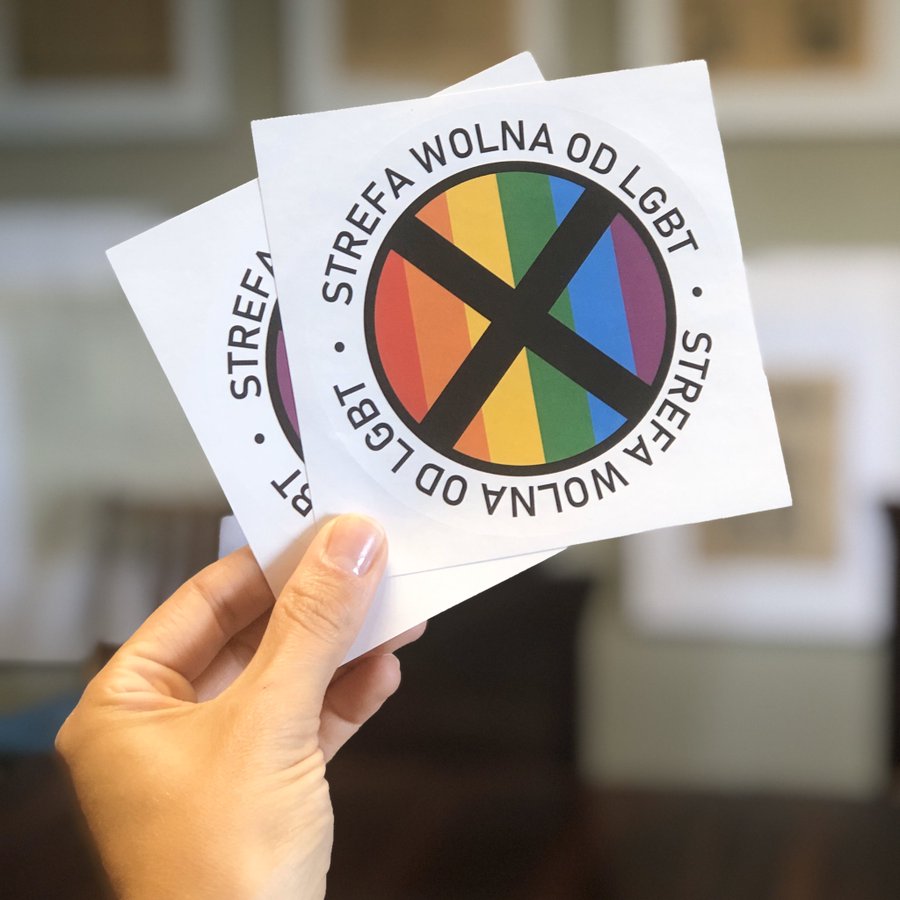
What can be done to support the LGBTI community in Poland regarding the hate stirred through the “LGBT-free zones” and the threat to bring the authors of the Atlas of Hate to trial?
ILGA-Europe is working in close cooperation with LGBTI organisations in Poland, assessing together on an on-going basis how civil society organiations, European and national policy-makers and other authorities can support the Polish LGBTI community in the light of these fundamental rights challenges and a increasingly hateful climate.
“LGBT-Free Zones”
Currently, over 100 municipalities in Poland have symbolically declared themselves “LGBT-free zones” by adopting declarations that implicitly or explicitly discriminate against LGBTI people. About 30 of these municipalities have signed a “Local Government Charter of the Right of the Family” initiated by Ordo Iuris, a far right religion based foundation, that has been and still is campaigning among others against LGBTI rights, against non-discrimination education in schools and for a total ban of abortion rights in Poland.
The Charter does not explicitly mention LGBTI people, but calls on municipalities to protect traditional families in all their policies, initiatives and funding. The ‘traditional family ‘is here defined as a (married) union between a man and a woman and their biological children. By calling on only focusing on these kind of families, the Charter calls for the discrimination of all other forms of families, including single parent families, patchwork families and same-sex couples and their families. This is incompatible with Art. 71 of the Constitution of the Republic of Poland, which reads: “The State, in its social and economic policy, shall take into account the good of the family. Families, finding themselves in difficult material and social circumstances – particularly those with many children or a single parent – shall have the right to special assistance from public authorities.” and Art. 18 “Marriage, being a union of a man and a woman, as well as the family, motherhood and parenthood, shall be placed under the protection and care of the Republic of Poland”.
Atlas of Hate
In order to raise awareness of the rapid spread of municipalities adopting discriminatory declarations, three Polish LGBTI activists: Kuba, Paulina and Pawe? have created the Atlas of Hate, a map listing the municipalities that have in one way or another declared themselves LGBTI free zones or adopted discriminatory Charter.
Threat of legal challenges to the authors of the Atlas of Hate
In a statement made on 8th March 2020, Ordo Iuris announced that municipalities who adopted the Family Charter will bring the authors of the Atlas of Hate to Court. They claim that the Charter is supposed to protect families and does not discriminate LGBTI people. According to Ordo Iuris, being mentioned in the Atlas among declarations against “LGBT ideology” is defamatory and violates the reputation of local governments.
The justifications and statements of decision-makers regarding anti-LGBT resolutions and the Local Government Charter on Family Rights leave no doubt as to the intentions of their authors. The resolutions are intended to dehumanize LGBTQ people and reduce them to “ideologies” and lifestyles allegedly threatening the family, and at the same time the Charter discourages employees of state institutions from equality and anti-discrimination measures. Thus, they create an atmosphere of consent to violence against LGBTQ people.
Calling for the discrimination against LGBTI people by excluding them from the definition of family, is also a strategy we have seen across Europe and globe on many other occasions, as for example in the Referendum in Romania in 2018, that aimed at changing the definition of family in the Romanian Constitution, or the European Citizen Initiative ECI “Mum, Dad & Kids” in 2017, which aimed at changing the definition of family to the “traditional model” for EU legislation.
STOP LGBTI initiative
At the same time, Kaja Godek’s Life and Family Foundation have started a new campaign, Stop LGBTI, this time collecting signatures to demand a ban on all Prides in Poland. Authors of the initiative claim the “LGBT movement is increasingly demanding legal privileges. The promotion of this idea is carried out by manifesting in an increasingly perfidious way, disregarding the rights and feelings of the normal majority of society (…) Citizens’ activity can prevent the decay of the moral order that has been taking place in Western Europe for decades. That is why it organizes the #StopLGBT civic legislative initiative, which aims to ban homopropaganda on the streets of Polish cities.”
What you can do?
Apart from blocking any measures and policies in Poland that would ensure protection against discrimination and hate against LGBTI people and ensure full protection of freedom of assembly, all these hateful and discriminatory initiatives create a climate of hate that is impacting on the LGBTI community and has already been translating to significant increase in hate crimes.
- Polish activists ask for attendance one of the many Pride marches in smaller cities across Poland that have been taking place for the first time last year. Attendance of European Institutions and Policy-makers will increase the security of these Marches and support the community directly! Reach out to Magdalena ?wider from KPH (mswider@kph.org.pl) who can put you in touch with local Pride organisers directly.
- Be in touch with policy-makers in Poland and start a dialogue, highlighting why these measures are extremely discriminatory against the LGBTI community and their direct harmful impact on Polish citizens’ lives and demanding a response on how municipalities and the government plan to ensure non-discrimination and safety of the LGBTI community in the light of these developments. This can be done from local level, especially through municipalities who have twinning or other arrangements with Polish cities, for MEPs through their political families, country visits or other occasion. Polish activists clearly ask for creating a dialogue with Polish authorities on local and national level, rather than stopping cooperation such as twinning arrangements as that would only further isolate the communities.
- On EU level, both the European Parliament and the European Commission have clearly condemned the LGBTI free zones. It is now important to keep pushing for such fundamental rights violations to be included in the planned annual rule of law reviews.
- Use your social media to raise awareness about the situation in Poland. Inform media representatives about discriminatory declarations that threaten respect of human rights in Poland. Reach out to Cecylia Jakubczak from KPH (cjakubczak@kph.org.pl) who can provide you with press materials.
How official anti-LGBTI hate speech is directly translating into hate crime across Europe
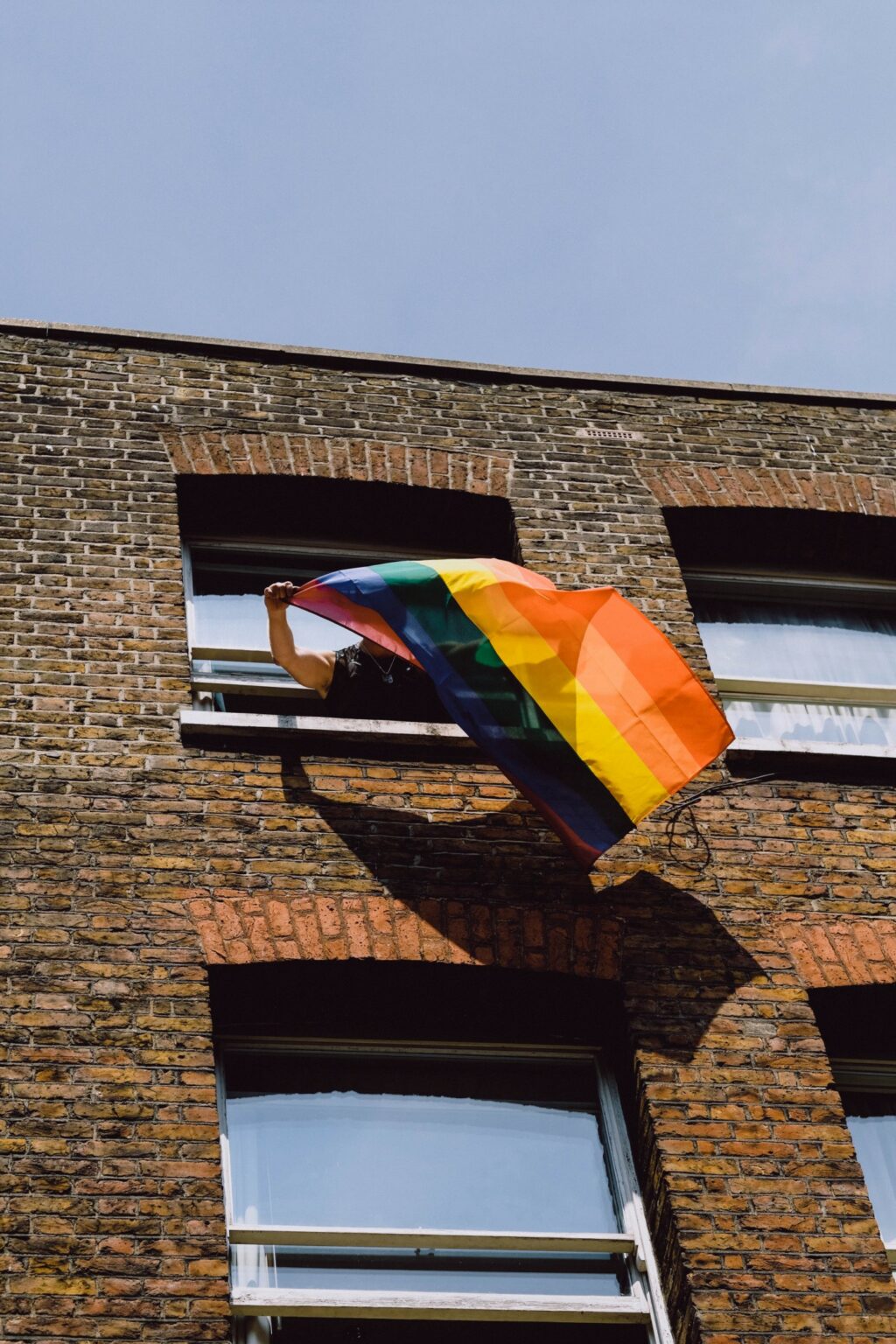
ILGA-Europe’s Annual Review identifies a sharp rise in anti-LGBTI hate-speech across the European region, often carried out by public figures. To mark European Day for Victims of Crime (February 22), we report on the ways in which such rhetoric is in turn violently affecting the lives LGBTI people.
Throughout 2019, there was sharp increase in physical attacks on LGBTI people across the European region, many of the latter premeditated and brutal. There was also an increase in attacks on LGBTI centres and gatherings. This isn’t only in countries where official hate-speech is on the rise, like Poland, Romania or Spain. An increase of hate crimes against LGBTI people is a pan-European phenomenon we have identified in our Annual Review 2020, which analyses trends and developments in the human rights situation of LGBTI people across 54 countries.
Brexit, for instance, and the populist narrative surrounding it, can be linked an increase in anti-LGBTI hate crimes and incidents in England and Wales from 5,807 in 2014–15, to 13,530 in 2018–19. The banning of events in Armenia, Hungary, Poland, Russia, and Turkey, and the prosecution of participants in Pride events in the latter, add to an atmosphere lacking in a sense of safety. In the Polish city of Lublin, a couple was arrested for bringing an explosive device to the Pride march.
There has also been the growing presence of anti-LGBTI, anti-gender and neo-Nazi protesters in public spaces during events such as Pride parades and film screenings. In several cities LGBTI centres were targeted with graffiti and other such attacks.
To mark European Day for Victims of Crime (February 22), here are examples of the many hate crimes documented in 2019, across the region:
Albania
On 12 November, a homeless trans woman who participated in the Dyke March, was brutally attacked by five men. The President of Albania condemned such “cowardly acts” and asked for the perpetrators to be brought to justice.
Armenia
On 20 June, 11 LGBT activists were verbally abused by four men in a park in Yerevan. The victims called the police, who told the activists to leave the park and took the four men to the police station. The investigation is ongoing.
Azerbaijan
Hate crimes against the LGBT community continued to be a serious issue in 2019. On 1 April, at least eight gay men and trans sex workers were detained by the police in Baku, signaling a new wave of arrests of LGBTQ people. On 2 April, a gay sex worker became a victim of extortion, theft, and blackmail in Baku and the perpetrator was detained. On 28 June, five trans women were physically assaulted by a group of 15 on a beach in Mardakan, four of the attackers have been arrested. On 6 July, a trans person was attacked outside a club while waiting for a taxi. The case was not reported to the police. In September, a gay man was beaten, harassed, and expelled from his village by his family for “dishonouring” them. The man reported the violence and a rape he was victim of last year.
Belarus
On 24 August, filmmaker Nikolai Kuprich and two friends were beaten up in a homophobic attack in Minsk.
Bosnia and Herzegovina
On 2 February, a lesbian couple was verbally assaulted and threatened with a knife and three days later were physically attacked by the same man and his friends. The violence was presumed to be linked to heightened homophobia ahead of the country’s first Pride march.
Bulgaria
Examples of documented hate crime include physical assault against two lesbians in January and February, and two gay men in Plovdid and in Varna. Five attacks were carried out against the LGBTI community centre, Rainbow Hub in the spring.
Cyprus
In February, a gay man was attacked in Nicosia. Despite multiple witnesses, the police failed to establish it was a hate crime. Another gay man was attacked by three men in a cruising area in Nicosia on 24 June. The case was reported to the police, who failed to take action.
Georgia
In June, renowned homophobe and public figure Levan Vasadze announced that self-organised groups, equipped with wooden clubs, would patrol Tbilisi to prevent Pride events. The Ministry of Interior stated that calling for the creation of such groups is illegal. However, no legal action was taken.
Greece
On 11 March, the building housing the Checkpoint Prevention and Examination Centers was targeted by a homophobic arson attack. The Checkpoints provide free HIV testing to vulnerable groups. On 2 September, two gay men were verbally harassed and physically assaulted by police officers.
Hungary
In March, Mi Hazánk live-streamed the disruption of a discussion on LGBTQI Roma people in Szeged. A day after Budapest Pride Festival opened extremists posted “Stop the Fag Propaganda” stickers outside the Auróra community space, Budapest Pride’s headquarters. Similar attacks were carried out in June, September and October. A participant of this year’s Budapest Pride March was spat on and kicked in the stomach after the event. In August, a girl was beaten up in Bénye for carrying a rainbow bag.
Iceland
In June, Candice Aþena was on her way home in Reykjavík when the men approached her, and after realising she was trans, kicked her in the face. This is not the first time Candice has been harassed.
Italy
Numerous hate crimes against LGBT people were documented in 2019, including two murders in May and June.
Luxembourg
Jean-Baptiste Pouthas, a French gay man was attacked in the Gare district of Luxembourg after a Pride party in July. Despite calling out for help, none of the passerby came to his rescue.
Montenegro
On 28 August, a trans man was attacked in Kolašin. The attackers went to the man’s house and when he answered the door, beat, insulted and humiliated him until he lost consciousness. The case was reported and police have arrested three suspects.
Portugal
In February, a lesbian couple was verbally and physically assaulted in Costa da Caparica. The couple called the police, who failed to show up. In July, a young trans man was targeted by physical and verbal violence in Coimbra, twice within a few days. The attack was reported to the police. In September, a gay couple was verbally and physically assaulted in downtown Lisbon. The police were nearby and identified the perpetrators, but let them go.
Romania
Two trans women were sexually and verbally harassed, and later physically assaulted on 8 June in Sibiu. The women were approached by a man in a club, who later physically assaulted them in a second club. No one intervened to defend the women, while they were being beaten. They fought back and reported the violence. The case is currently pending, the victims have not heard back from the police
Russia
Hate crimes against LGBTI people, including murder, physical violence and extortion were committed again this year. The authorities failed to classify them as anti-LGBTI hate crimes. In February, a court in Tatarstan sentenced a man to one year in prison for physically attacking a teenager who he thought was gay.
Serbia
Belgrade’s Pride Information Centre was attacked four times since December 2018. Although the police were informed of the possibility of one of the attacks in October, they did nothing to prevent it. On 24 June, a lesbian couple was harassed at the Engineering Students’ Club (KST). The security staff refused to protect them, saying they were to blame and should not have kissed.
Slovenia
On the morning of 1 November, one of Slovenia’s few LGBTI spaces, Tiffany Club in Ljubljana, was violently attacked by a group. In October, a gay man was beaten up in Murska Sobota.
Spain
A trans sex worker was brutally murdered by a client in Avilés on 21 September. Gay men were verbally harassed, threatened and assulted in Barcelona, Tenerife, and Valencia. On 19 December, politician Ángel Vázquez suffered a homophobic attack in Burjassot.
Switzerland
An increasing number of violent incidents, primarily against gay men, were reported this year, including an attack against an information stand at IDAHOT, May 17, and a gay couple being attacked on their way home from Pride in June. Both cases happened in Zurich.
Turkey
Several trans woman were victims of murder this year. Hande ?eker was murdered by a police officer in Izmir on 9 January; Gokce Saygi was killed in her home in Antalya in May; Defne was killed in her house in Afyonkarahisar in June. Court cases are ongoing. A group of trans women were attacked in a park in Antep in June and were then detained and verbally abused by police officers.
United Kingdom
On 30 May, a female couple was attacked by a group of men in London. The case went viral after the victims posted a picture of their injuries. London’s mayor, Sadiq Khan, and then Prime Minister Theresa May condemned the attack.
Charting a sharp rise in anti-LGBTI hate speech across Europe

While this week Switzerland made hate speech illegal against people based on their sexual orientation, in 2019 one of the trends observed in ILGA-Europe’s Annual Review is a sharp rise in on-and-offline anti-LGBTI hate speech, often from political leaders, across Europe. As our Executive Director, Evelyne Paradis, recently shared at the Google Online Safety Summit, “LGBTI communities need to know that perpetrators of violent speech will be held responsible”.
Our current Annual Review, which was launched at the European Parliament on February 4, identifies trends and developments in the human rights situation of LGBTI people across Europe. One of these trends is a sharp rise in hate speech across the region, often carried out by public figures. One of the cases which received the most media attention was in Poland, where anti-LGBTI rhetoric by the governing Law and Justice (PiS) Party resulted in more than 80 municipal or local governments proclaiming themselves to be “free from LGBTI ideology”.
However, while much of the public and political attention was focused on Poland, ILGA-Europe’s Annual Review 2020 identifies growing official hate speech from political and religious leaders in other countries, where anti-LGBTI rhetoric was propagated with impunity. In most Central Asian countries, including some where LGBT people continue to be criminalised, there are reports of official hate-speech. Here is what we found:
Albania
In October, MP Kujtim Gjuzi (Conservative Party) publicly threatened LGBT people on a prime time political show on RTV Ora. The host also made negative statements. Both cases were reported to the Council of Complaints at the Albanian Media Authority, which issued a warning, but did not impose a fine on the channel.
Andorra
In August, Naira Nahapetyan, a member of Yerevan’s Municipal Council boasted online about attacking LGBTI people. Comments on the post incited violence against LGBTI people.
Azerbaijan
In February, Aynur Sofiyeva, Deputy Chairperson of the State Committee for Family, Women and Children Affairs, made homophobic remarks at an event, criticising the West for trying to impose same-sex marriage on others.
Belarus
In July, Dmitry Tsayun, official of the Ministry of Interior, said that LGBT equals pedophilia in an article published on sexual violence against children. The project, whose platform published the article, was supported by UNICEF Belarus. Local civil society urged UNICEF to promptly remove the article, which they did. It is however still available on the Ministry’s website.
Bosnia and Herzegovina
Following the news that the country’s first Pride would be held in September, hate speech became more common, mainly on social media. For instance, MP Samra ?osovi? Hajdarei? publicly called for the isolation and expulsion of LGBT people from society, and particularly children.
Bulgaria
Candidates for local elections in Sofia from ultra-nationalist parties, Dzhambazki (VMRO-BND), Volen Siderov (Ataka), and Nikolay Drenchev (Vazrajdane), promised to ban Sofia Pride if elected.
Cyprus
In August, following international public outcry, the Attorney General called for an investigation of the Bishop of Morfou’s statements, that gay men give off a “particular odour” and can be identified by “holy men”. The police dropped the case, finding no element of hate speech.
Czech Republic
A spokesman of the Czech President, Ji?í Ov?á?ek, stated that “the ideologies of ‘climatism’, LGBT or ‘genderism’ are totalitarian”. Chairman of the Senate, Mr. Kubera, made similar statements. AntiLGBTI sentiments are one of the key drivers of the new ultra conservative party Trikolora, founded this year.
Finland
Prior to Helsinki Pride in June, Christian Democratic politician Päivi Räsänen published an open letter criticising the Church for participating in the Pride. Evangelical Lutheran archbishop Tapio Luoma responded by affirming that same-sex couples are warmly welcome at Church events. Following Räsänen’s letter, a few hundred people formally left the Church.
Georgia
In February, an MP of the “Georgian Patriots” tabled an initiative to eradicate the terms sexual orientation and gender identity from 14 laws. The initiative was not adopted.
Greece
In January, Panos Kammenos, Minister of National Defense was sued by the Greek Helsinki Monitor for his homophobic hate speech against MP Georgios Amyras from the centrist party, To Potami. Kammenos’s remarks were both homophobic and sexist. No official apology followed.
Hungary
On 15 May, Speaker of the Parliament and former President László Kövér (Fidesz) stated that “morally there is no difference between the behaviour of a paedophile and the behaviour of someone who demands” same-sex marriage and adoption sparking outrage.
Kosovo
In February, the Prosecution initiated (ex-officio) a case against an official in the Ministry of Justice for hate speech against LGBTI people. In a comment on social media the official wrote that homosexuals and LGBTI people should be beheaded. The police took him into custody and held him for 48 hours. LGBTI organisations were unable to get further information regarding the case.
Portugal
In March, Porto’s Court of Appeal judge Neto de Moura condemned same-sex marriage and adoption by same-sex couples. Previously, the Judge passed victim-blaming judgments in domestic violence cases and is now banned from taking such cases.
Slovakia
During the presidential elections in March, several parties used homophobic hate speech in their campaigns. Civil society called on politicians to abstain from hate speech against the community.
Spain
Following the far-right Vox’s debut in the Senate, in February the party vetoed a motion to tackle homophobia in sports. In its election campaigns in May, Vox vowed to ban Pride marches and compared homosexuality to “bestiality”. In the November elections, Vox came in as the third strongest party.
Turkey
The Minister of Internal Affairs, Süleyman Soylu made several anti-LGBTI statements along 2019. In May, LGBTI+ people were targeted by hate speech at a symposium organised by Turkish National Human Rights Institution (T?HEK). On 5 July, the Friday khutbah of Presidency of Religious Affairs read in all mosques, included anti-LGBTI statements.
Commenting on the rise of official anti-LGBTI hate speech, our Executive Director, Evelyne Paradis said: “The governments of some countries are overtly turning the tide on LGBTI and other minority rights, seeking to replace democracy and diversity with ‘traditional values’. Their voices may be loud, but we know that most EU member states want to see continual progress towards equality for LGBTI people in Europe and beyond.
“The rights and freedom of the LGBTI community are not separate from the rights and freedom of all who live in Europe and Central Asia, and the erosion of those rights is a marker for the erosion of all fundamental human rights.”
ILGA-Europe welcomes a landmark European Court of Human Rights judgment on online hate speech

Today, the European Court of Human Rights found Lithuania’s failure to investigate online hateful comments against a gay couple to violate their rights to private and family life as well as being discriminatory on the ground of sexual orientation.
The landmark case of Beizaras and Levickas v. Lithuania originated after one of the applicants posted a photograph of him kissing his male partner on his Facebook page, which led to hundreds of online hate comments. Some were about LGBT people in general, while others personally threatened the couple. The applicants alleged that they had been discriminated on the ground of sexual orientation, on account of the public authorities’ refusal to launch a pre-trial investigation into hateful comments left on the first applicant’s Facebook page. They also argued that the Lithuanian authorities’ refusal to launch a pre-trial investigation had left them without the possibility of legal redress.
In a unanimous judgment, the Court found violation of Article 14 (prohibition of discrimination) of the European Convention on Human Rights, taken in conjunction with Article 8 (right to respect for private and family life), and Article 13 (right to an effective remedy).
The Court reiterated the authorities’ positive obligation under Article 8 to effectively investigate whether the comments regarding the applicants’ sexual orientation constituted incitement to hatred and violence. The Court considered that the failure to discharge such obligation was due to the “discriminatory state of mind” of the authorities. Accordingly, the Court held that it constituted violation of Article 14, taken in conjunction with Article 8 of the Convention.
The Court found that the statistics provided inter alia by the third-party interveners and ECRI’s report demonstrated a clear lack of willingness by the Lithuanian authorities to prosecute perpetrators. The applicants had been denied an effective domestic remedy in breach of Article 13 of the Convention.
Importantly the Court reaffirmed the right of individuals to openly identify themselves as gay, lesbian or any other sexual minority and the growing general tendency to view relationships between same-sex couples as falling within the concept of “family life”.
The Court’s judgment was informed by a third party intervention submitted jointly by the AIRE Centre (Advice on individual rights in Europe), ILGA-Europe, the International Commission of Jurists (ICJ) and the Human Rights Monitoring Institute (HRMI).
“Today’s judgment is ever more important in establishing State’s positive obligations in tackling hate speech against LGBTI people in Lithuania and across Council of Europe member States amidst the rise in hate in a number of countries,” said Arpi Avetisyan, Senior Litigation Officer, ILGA-Europe.
“The Court was clear that such ‘undisguised calls on attack’ on the persons’ physical and mental integrity require protection by the criminal law and public authorities must apply the law without discrimination. We hope this judgment will be implemented duly and promptly ensuring equality and safety for the LGBTI community in Lithuania.”
Robert Wintemute, Professor of Human Rights Law at King’s College London (UK) and co-representative of the applicants, said: “I am very pleased that the European Court of Human Rights has sent such a strong message to national authorities across Europe that they must take anti-LGBTI hate speech seriously, and investigate complaints, even about a single hateful comment on Facebook, let alone one that LGBTI persons should be killed. .”
Tomas Vytautas Raskevi?ius, Member of the Vilnius City Council (Lithuania) and co-representative of the applicants, said: “The European Court of Human Rights has concluded today that the Lithuanian authorities systematically fail in effectivelly responding to homophobic hate speech online. I am positive that this judgment will become a powerful entry point to start conversation with Lithuanian police, prosecutors and judges about the measures that we must take in order to encourage reporting and effectivelly tackle anti-LGBT crimes..“
According to Vladimir Simonko, Executive Director of Lithuanian Gay League (LGL), this case raises questions of considerable public importance about the nature and scope of the positive obligation of Member States under the European Convention of Human Rights (ECHR) to protect individuals from homophobic hate speech and incitement to violence.
“It is appalling that the Lithuanian Government were challenging the very fact that a civil-society organisation might also have a legitimate interest in the outcome of the applicants’ case, and thus questioning the fundamental role of non-governmental organisations in performing a “public watchdog” function in a pluralist, democratic society,” said Simonko.
According to Livio Zilli, Senior Legal Adviser & UN Representative with the International Commission of Jurists (ICJ): “Among other things, the ICJ welcomes the Court’s finding in its judgment today that, as a result of their discriminatory attitudes towards the applicants’ sexual orientation, the authorities had denied them an effective domestic remedy in connection with their complaints about a breach of the right to private life under the Convention.”
- ILGA-Europe’s joint intervention with partners is here.
- Find out more about ILGA-Europe’s strategic litigation work.
ILGA-Europe Welcome European Parliament Resolution Tackling the Rise in Hate against the LGBTI Community
A resolution adopted by the European Parliament today makes a strong call for an EU LGBTI strategy to counter the rise of official hate-speech and its consequences across the European Union.
The European Parliament’s resolution on public discrimination and anti-LGBT hate speech, adopted in Strasbourg today, identifies a broad trend across Europe and its consequences in society, amid deeply worrying situations in several countries.
The resolution wraps up the debate on public discrimination and hate speech against LGBTI people that was held in plenary in Strasbourg on 26 November.
During that debate, MEPs voiced their concern regarding ‘‘LGBTI-free zones” in Poland. Ahead of parliamentary elections in the country this autumn, dozens of municipalities, countries and provinces in the south-eastern part of the country declared themselves “free of LGBTI ideology”. By now, 86 “LGBTI-free zones” have been declared.
The resolution calls on Poland to firmly condemn discrimination against LGBTI people and to revoke resolutions attacking LGBTI rights, including local bills against “LGBT ideology”, in accordance with its national law; as well as its obligations under EU and international law.
In Poland, Kuba Gawron, co-author of research on LGBT-free zones and Atlas of Hate, called the resolution “a strong expression of support for the LGBTI community in Poland, which is under attack.”
“We call on the Polish Government to repeal all anti-LGBTI resolutions in accordance to national law,” he said. “Such resolutions are a threat to LGBTI-community and create an atmosphere of consent for violence. We also call to the European Commission to verify Polish compliance with the anti-discrimination provisions in the contracts for EU-funded projects. We believe that these provisions may be broken, especially in the education sector.”
In a broader context, the resolution expresses deep concern at the growing number of attacks against the LGBTI community coming from the State officials and politicians at the national, regional and local levels. It recognises that such attacks have seen a rise in violence against LGBTI people, with hate crimes motivated by homophobia and transphobia on the rise across in the EU, while responses from authorities too often remain inadequate.
The resolution reiterates a call on the Commission to adopt an EU LGBTI strategy and a comprehensive, permanent and objective EU mechanism on democracy, rule of law and fundamental rights that includes the protection of LGBTI rights. It calls for the adoption of legislation and policies in several different areas, including freedom of movement, hate-speech and crime, education, and sports, to ensure the equal human rights of LGBTI people.
Advocacy Director of ILGA-Europe, Katrin Hugendubel, said: “We very much welcome that the European Parliament with this resolution condemns these developments and speaks out clearly in solidarity with the LGBTI communities across Europe,with a call for an EU LGBT strategy.
“According to the German ministry of interior, the number of homophobic hate crimes in the first six months of 2019 were already more than in the whole of 2013. In the latter part of this year, our members reported attacks on community events or their offices in Belgrade, Ljubljana, Budapest, Vienna and Lublinwhere explosive devices were taken to the Equality March, presumably intended to cause grievous bodily harm or death.
“Europe is at a dangerous crossroads. Certain groups and organisations are overtly turning the tide on LGBTI and other minority rights, seeking to replace democracy and diversity with ‘traditional values’. In this context of rising hate and attacks on LGBTI rights, it is more important than ever to reconfirm and strengthen the commitment from the EU institutions to work on protecting LGBTI rights.”
- The resolution received 463 votes in favour, 107 against and 105 abstentions.
- Read here the resolution adopted in PDF.
- Watch November 26 the debate here
- See Kuba Gawron’s Atlas of Hate – an online map that shows “LGBT-Free Zones” in Poland.
Armine Oganezova against Armenia
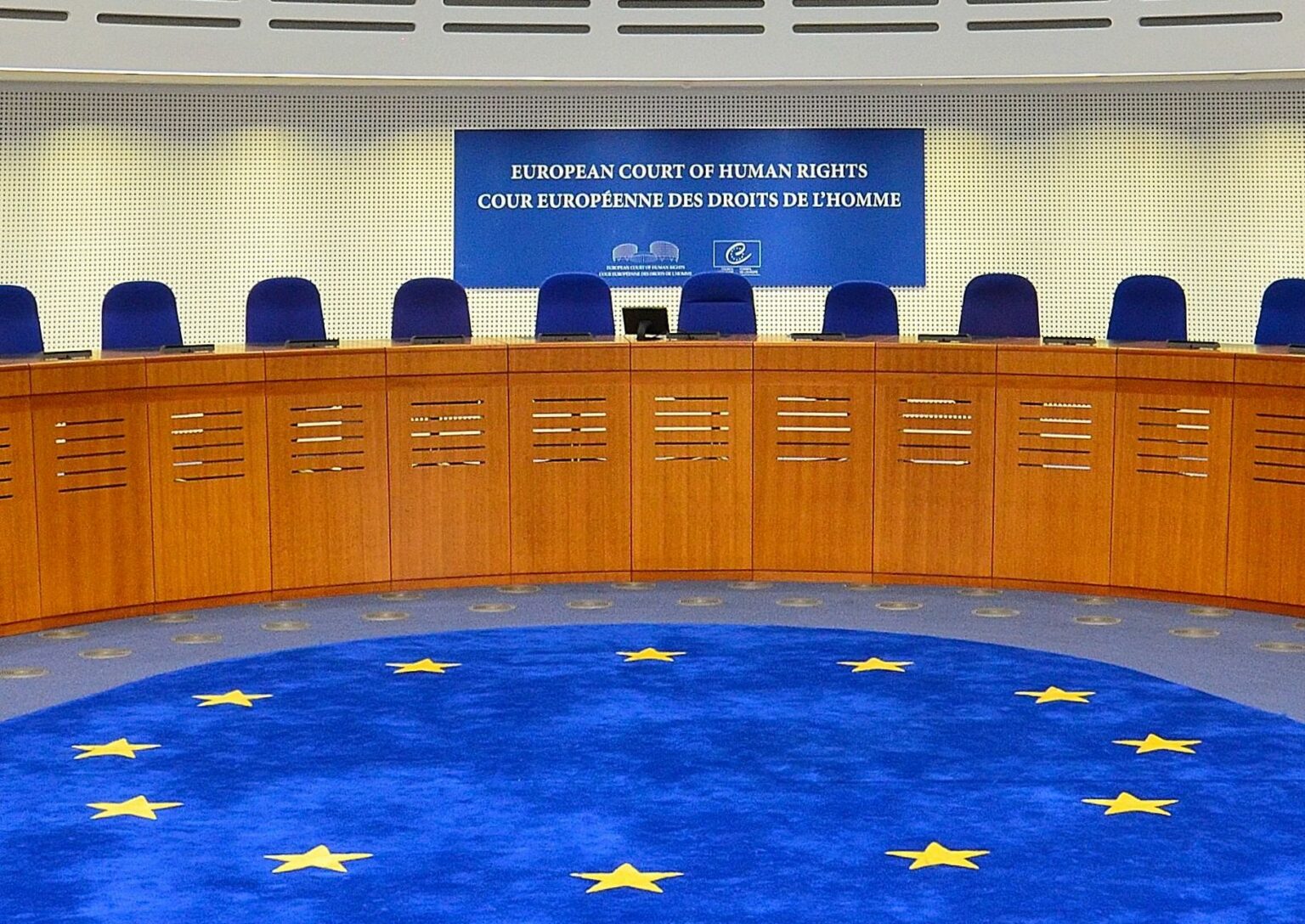
Hate speech and violence against LGBTI people.
(Apps nos. 71367/12 and 72961/12), 15 October 2019
Find here the communicated case.
- The applicant was a well-known member of the LGBT community in Armenia and co-owner a club where members of the LGBT community would meet to socialise. She had attended Istanbul Pride in 2011 and given interviews to some media outlets criticising Armenia’s human rights record. As a result she became the subject of an online hate campaign because of her sexual orientation. Shortly thereafter several people organised an arson attack on the club co-owned by her. She faced threats and harassment and was subjected to hate speech by high profile government representatives and members of the parliament. Given lack of anti-discrimination legislation in Armenia, applicant’s sexual orientation was not considered as a motive for the acts and there was no effective investigation.
- ILGA-Europe together with the AIRE Centre, the ICJ and Human Rights Watch submitted the following:
- The identity of victim of violence as an LGBT person should be taken into account in the assessment of Article 3 violations. Indeed the discrimination directed towards LGBT persons may indicate a particular motive and intent that may meet the threshold of Article 3 ECHR should be taken into account in the assessment of Article 3 violations. Indeed, discriminatory use of violence against a vulnerable group is an important factor and the ECtHR has acknowledged that LGBTI minorities may constitute vulnerable groups.
- Contracting States have a positive obligation under Articles 3 and 8 of the ECHR to protect from and investigate allegations of violence with discriminatory elements. According to the ECtHR, the State has a heightened burden of protection when there is prior knowledge of public hostility towards the LGBT community. These obligations are also widely recognized by current international and regional standards.
- Armenian legislation does not afford protection against explicitly homophobic or transphobic violence or threats or other incitement to such violence. In practice, LGBT persons and affiliates in Armenia continuously struggle to enjoy equality, both at personal and societal levels.
- It is of particular importance :
- To protect persons from violence, and put in place necessary legislative, policy and other measures for unmasking any discriminatory motive or intent present in the acts of violence.
- To ensure that a comprehensive anti-discrimination legislation is in place, and sexual orientation and gender identity are explicitly recognized as protected grounds for discrimination.
ILGA-Europe welcome landmark decision by Kazakhstan Supreme Court to uphold the privacy of a lesbian couple

In what is seen as a first legal victory for LGBTIQ rights in Kazakhstan, the Central Asian country’s Supreme Court has overturned a decision by the Court of Appeal, saying it “committed a substantial and gross violation of the right to self-portrayal under Article 145 of the Civil Code and infringement of the constitutional rights” of a lesbian couple.
A controversial case that took a year and a half for Kazakhstan’s court system to hear has turned out to be the first legal victory for LGBTIQ rights in Kazakhstan.
In January 2018, two young women (unnamed for ethical reasons) were filmed kissing at a cinema in the city of Almaty by a man, Eldar Mamedov. Mamedov posted the video to Facebook, where it was viewed over 60,000 times and reposted on various other social networks. The faces of both women were fully identifiable and they were subsequently recognised on the streets, and asked questions like, “Have you not been killed yet?”
Comments under the video posted by Mamedov included death threats, calls for violence and other hate speech. Fearing for their safety, the two young women were forced to leave Kazakhstan for eight months.
On 19 February 2018, the women filed a lawsuit in the Auezov District Court of Almaty claiming that the fact of the distribution of the video without their consent was illegal. They said Mamedov’s distribution of the video on Facebook was unlawful, claiming nominal damages against the defendant. The women were supported by the Kazakhstan Feminist Initiative “Feminita”, while the LGBTIQ community also rowed in to support their case. Events were held to raise money to partially cover costs for legal support.
The District Court found in favour of the plaintiffs on 18 May last year, granting nominal compensation damages of 15,000 tenge (35 euro), so the women could not be accused of ‘cashing in’ on their circumstances. Mamedov filed an appeal with the Almaty City Court.
“Defender of morals”
On 17 August 2018, the Almaty City Court found in favour of Mamedov, overturning the District Court’s decision. Citing Article 20 of the Kazakhstani Constitution on the right to freely receive and disseminate information in any way not prohibited by law, the court added: “[our] society is not ready for open sexual relations between people of the same sex, the Law On Marriage and Family allows a legal union only between a man and a woman, same-sex unions are not allowed by the current legislation of the Republic of Kazakhstan.”
Saying the actions and behavior of the plaintiffs openly violated “the morale and moral foundations of society,” the court concluded that Mamedov “acted as a defender of the morals of the population.”
“Actions in the eyes of the majority of society are considered immoral and obscene, and the fact that this happens in front of children is generally immoral and affects the mental consciousness of children,” the judicial board said.
However on 30 July this year, the Supreme Court found in favour of the women, heavily criticising the decision of the Court of appeal to uphold Mamedov’s appeal. In its decision, the Supreme Court said that: “the Court of Appeal committed a substantial and gross violation of the right to self-portrayal under Article 145 of the Civil Code and infringement of the constitutional rights of plaintiffs” guaranteed by Article 18 of the Constitution of the Republic of Kazakhstan, according to which everyone has the right to privacy, personal and family secrets, protection of one’s honor and dignity.
An important message
Commenting on the Supreme Court’s decision, co-founder of “Feminita”, Zhanar Sekerbayeva said: “This will be a lesson for people in Kazakhstan who proclaim the struggle for morality. The violation of human rights and a call for hatred did not go unpunished. Both young women and our team repeat this important message: sue if your rights are violated! We are glad that the “Feminita” team supported the young women and we walked with them to the end! Thanks to everyone who was in solidarity with us!”
According to Björn Van Roozendaal, Programmes Director with ILGA-Europe, “A judicial precedent has been set and we sincerely commend persistence, patience and courage of the couple who stood up for their rights. We also congratulate our partners “Feminita” team, one of the initiative groups in the forefront of defending LBQ women’s rights in Kazakhstan, who have been with the couple from the start to the end.”
In a statement given to “Feminita”, one of the women said: “On 30 July, we left the courtroom with relief that finally, after a year and a half, we reached the end and we were not alone on this path. And it all started from the moment when we decided to spend a cozy evening and just watch a movie.”
The second woman added: “Few believed that we would defend our rights in court. Those who did not believe argued that our society was not yet ready for such changes. Many advised me not to be a “pioneer”, since it is pointless and useless, saying, “nothing will change anyway.” I believe that the opinion of society should not affect the struggle for our rights. If not you yourself, then who else will stand up for you?”
This story is based on the article of Kazakhstan Feminist Initiative “Feminita”. The original text may be accessed here.
Swiss Senate votes to improve protection on grounds of sexual orientation but not gender identity
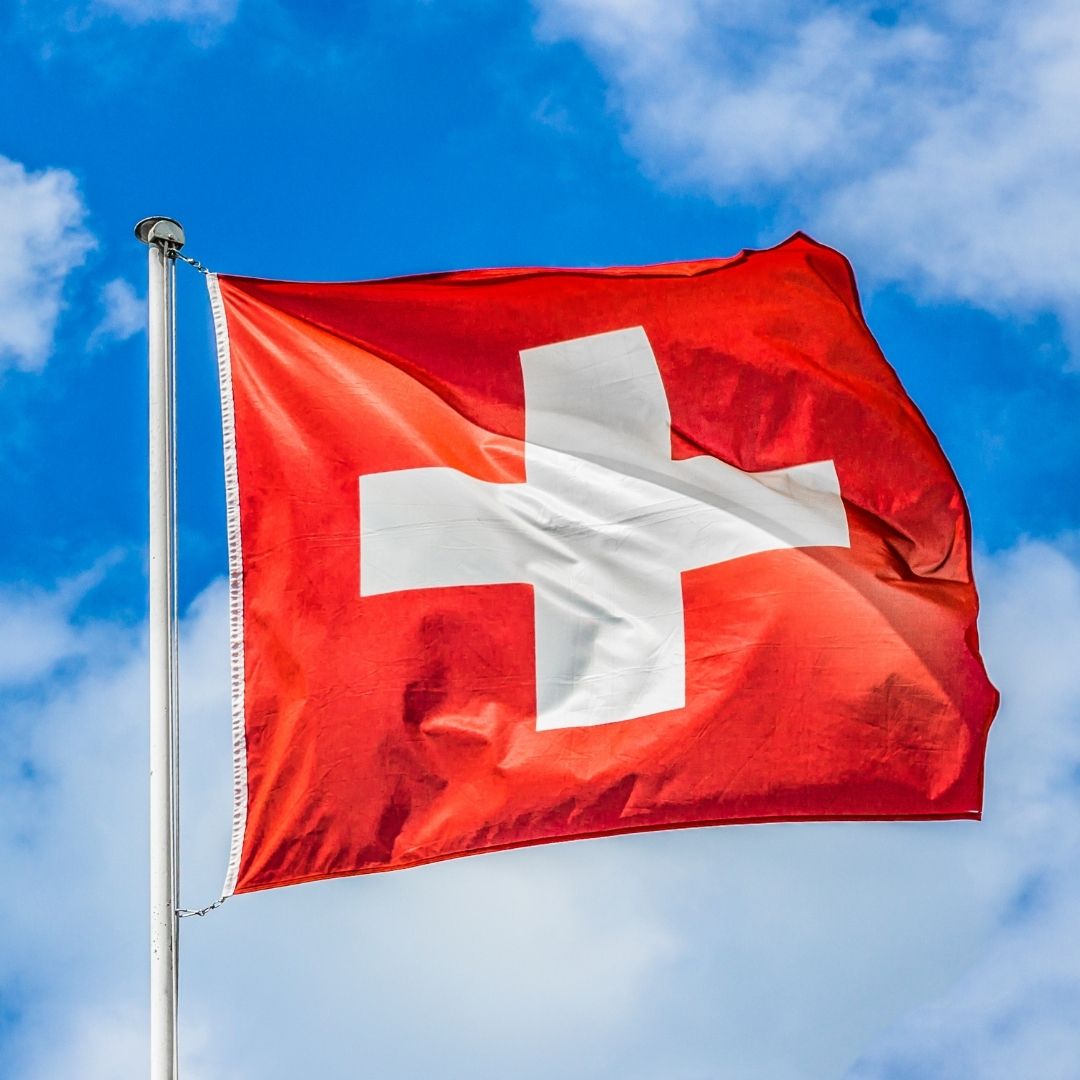
On 28 November 2018, the swiss Senate of voted to criminalise hate speech and discrimination on grounds of sexual orientation, but refused to do the same for grounds of gender identity.
ILGA-Europe welcomes the extension of protections against hate speech and discrimination based on sexual orientation – this is an important step forward for lesbian, gay and bisexual citizens of Switzerland. However, the decision of the Senate to explicitly exclude grounds of gender identity constitutes a denial of this protection for trans people, and sends the message that hate speech and discrimination against them is acceptable.
This news is especially disappointing as a few months ago the Swiss parliament had specifically and proactively proposed to include both sexual orientation and gender identity in the extension of the relevant article – which had until now explicitly covered only grounds of race, ethnicity and religion – and passed the inclusion of both grounds in parliament.
ILGA-Europe’s Rainbow Map shows that legislative and policy protection from discrimination and hate speech on grounds of sexual orientation has been improving across Europe. However, the same cannot be said for grounds of gender identity or expression, which are explicitly protected in just over a dozen countries. While some countries have merely not amended their laws in line with current international standards which provide for explicit protection from discrimination on grounds of gender identity as well as sexual orientation, the Swiss Senate has outright rejected current international standards to explicitly deny these protections for trans people.
ILGA-Europe expresses deep concern for this denial of the human rights of trans people. We call on the Swiss authorities to amend relevant laws to include protection on grounds of gender identity and also sex characteristics, thus bringing its legislation in line with international standards and ensuring protection from hate against trans and intersex people.
Armenia’s government must protect LGBTI citizens
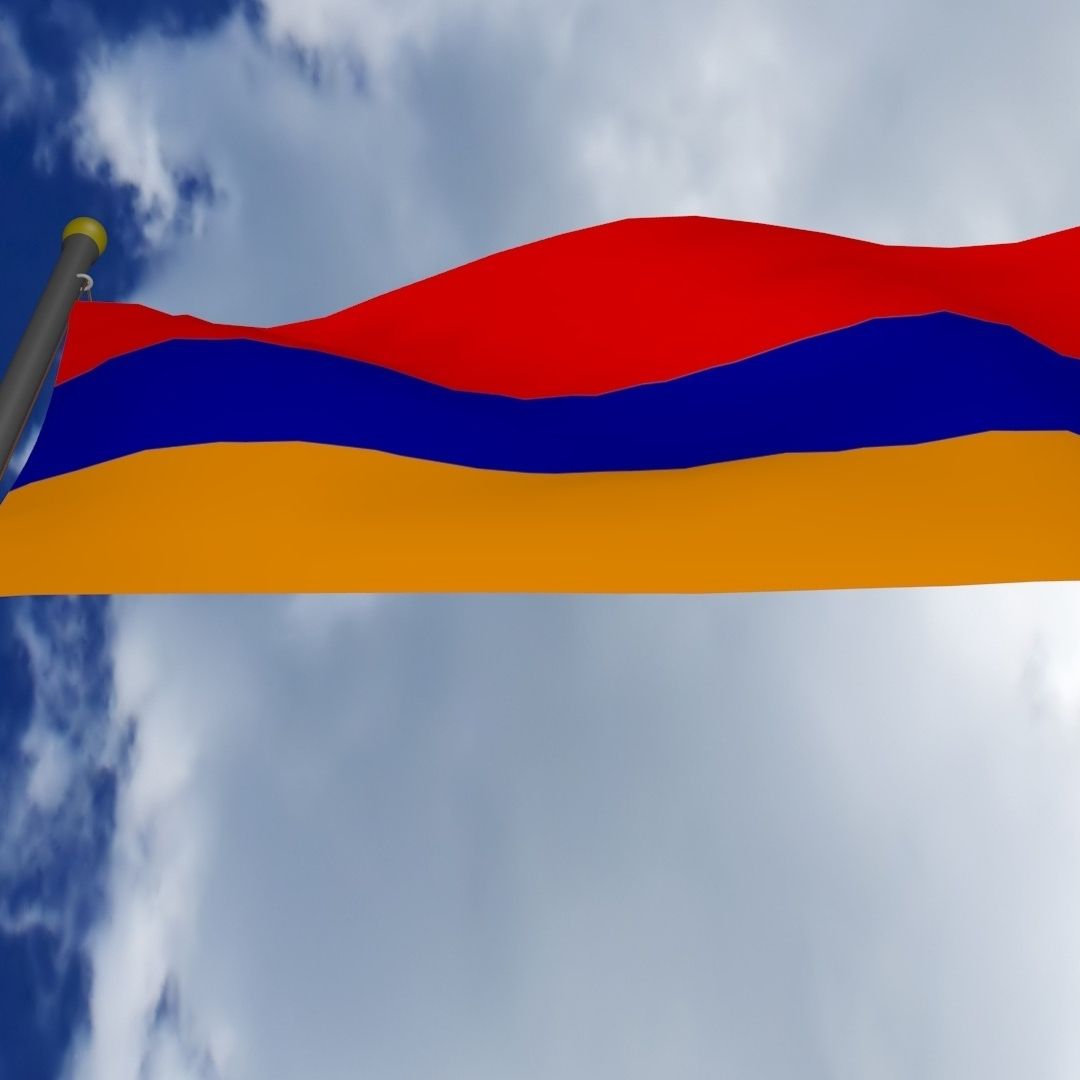
In recent days, Armenia’s LGBTI community has been seriously failed on multiple occasions by national authorities after concerted attacks by conservative groups. This is a grievous betrayal of their responsibilities under international human rights law.
On 6 November, the organisers of the annual Eastern European and Central Asia Forum Conference of LGBTI+ Christians were forced to cancel the 2018 event, scheduled to take place in Yerevan on 14-18 November.
This decision was forced upon the organisers after a series of death threats, vandalism and homophobic acts directed at (perceived) LGBTI people in Armenia.
“ILGA-Europe are demanding a swift response from national authorities in Armenia – they must investigate these attacks, hold the perpetrators accountable and defend their LGBTI citizens.” said ILGA-Europe Executive Director Evelyne Paradis. “Attacks of this nature cannot be dismissed or ignored.”
Local host organisation ‘New Generation’ had to suspend its work after staff members were intimidated by anti-LGBTI activists and its director’s car was vandalised. Several tourists who were thought to be Forum attendees were violently assaulted on the street in early November and Forum participants received hundreds of death threats on social media.
Politicians and law enforcement agencies alike have failed to live up to their responsibility to protect the lives and physical integrity of their citizens. Even more worryingly, in some cases, they have actively escalated the tension.
Not only have the police failed to offer significant protection to the victims of these death threats, opposition political parties have mobilised right-wing extremist groups and been the source of these threats themselves. Also, on 24 October, Prime Minister Nikol Pashinyan referred to LGBTI equality as a ‘headache’ during a parliamentary discussion of the Forum, saying that ‘family values’ are the most important thing for him.
“The Prime Minister’s statements have contributed to a claustrophobic climate, making it almost impossible for LGBTI human rights defenders to work. LGBTI human rights defenders stand for family values for all people – and every family is deserving of the state’s protection.” commented ILGA-Europe’s Programmes Director, Bjorn van Roozendaal.
In the wake of death threats and increasingly violent hate speech directed towards the LGBTI community, Armenia’s government and law enforcement agencies must provide adequate safeguards for the LGBTI community and its allies.
ILGA-Europe call on regional and international organisations to utilise all mechanisms available to them in order to ensure Armenia adheres to its human rights obligations.
- As of 2018, Armenia currently sits at 48th place (out of 49 countries) in the Rainbow Europe ranking on LGBTI law and policy.
- The latest update from the European Forum of LGBT Christian Groups and the “New Generation” Humanitarian NGO is available here.
- The Forum Conferences of LGBT Christians of Eastern Europe and Central Asia has taken place since 2004 in various countries (Ukraine, Russia, Estonia, Moldova, Romania). The event brings together 60–70 LGBTI people of faith, activists, church ministers, and psychologists for several days of intensive networking, discussions, sharing, and prayer.